Places on our 2024 summer school are filling fast. Don’t miss out. Enrol now to avoid disappointment
- How to Write an EPQ Essay

Writing an EPQ essay can seem like a daunting task, which is why we’ve written this nine-step guide to help make the whole process easier.
In addition to the A-Levels you’re already doing, you can choose to take an EPQ (Extended Project Qualification). An EPQ is an independent research project, and it’s extremely beneficial as it counts towards UCAS tariff points.
Consisting of around 5,000 words, an EPQ essay is an in-depth assignment which takes about 120 hours to complete.
That may seem like a lot of extra work to take on alongside your existing studies, however it can be hugely beneficial when applying to get into university.
Choosing to undertake independent research and reading can prove to future educators that you’re willing to take on extra work to really show what you can do academically, as well as demonstrating that you have interests that go beyond the curriculum. An EPQ sits nicely with a summer school course such as a law summer school , business summer school , engineering summer school and medicine summer school . During your course you have the chance to explore and understand your subject further, demonstrating your commitment to your studies, and develop ideas for your EPQ.

How do you write an EPQ essay?
To write an EPQ essay, you need to: come up with a compelling idea that you’re interested in, write down everything you know about the subject to generate further ideas, find the best essay question to use, reference your sources properly, write a sharp introduction and conclusion, get feedback on your essay, and make sure you double-check your work before submitting it.
The key to writing any extended document is planning, which is why we’ve written this nine-step guide to help you write the best EPQ essay.
Read on for our top tips on how to write an extended project essay.
9 steps to write your EPQ essay
1. come up with an idea.
One of the main reasons students fail their EPQ is because they’ve chosen the wrong subject matter. It’s vital that you choose a topic you’re genuinely interested in, otherwise you won’t have any motivation to work on it. Because of the extra workload, many students choose to start their EPQ over the summer holidays, and with all the distractions that summer brings (trips to the beach, sunbathing in the garden or hanging out with friends in the park) there’s even more reason to pick a subject you don’t find boring, or you’ll just look for any excuse to avoid doing it. Before finalising your topic, you might want to discuss your ideas with your supervisor so they can check you’re on the right track.
2. Write down everything you know about the subject.
Before doing any extra reading, it’s really helpful to write down everything you already know about your chosen subject. This can help to get your thoughts and ideas – which are often jumbled up – out of your head and down onto a piece of paper or computer screen so that you can begin to organise and make sense of them. This is also useful for identifying any gaps in your knowledge. However, if the gaps in your knowledge are vast and your chosen topic isn’t giving you enough inspiration, don’t be afraid to abandon your original idea entirely and come up with something new. It’s better to start again from scratch at this stage, rather than 2,000 words in.
3. Think of a question
Whatever your chosen topic, you’ll need to think of a question to answer. This is an extremely important part of your EPQ and will form the basis of your essay, so it really is worth thinking long and hard about. The way in which you phrase your question or hypothesis will affect the structure and flow of the whole essay. For example, some typical essay question formats include ‘Compare and contrast’, ‘Critically evaluate’ and ‘Analyse and conclude’. The type of question you want to answer will affect whether you need to highlight and critique a number of theories or evaluate how useful a particular concept is. And remember that your extended project essay needs to be approximately 5,000 words long, so you should choose a question that allows for extended research and arguments. It’s also worth bearing in mind that questions without definitive answers are better as there will generally be much more to write about.
4. Research the topic
Next, you should start thinking about the main body of the essay and how you’re going to go about fleshing out your ideas. Ideally, this step should take up half the amount of total time you spend working on your EPQ essay. You should spend a good deal of time reading books, papers and online journals that have been written about your chosen subject. The Internet is an excellent source of information, but anyone can write anything and publish it online, so make sure your sources are credible and recognised by the examining body. Wikipedia, for example, should be avoided as a reliable source of information as anyone can edit the text that’s been written there. While doing your research, you’re going to come across many different opinions and arguments and it’s all going to come from a variety of sources. So now is also a good time to think about how you’re going to organise it all.
5. Remember to reference your sources
As with any piece of academic work, referencing your sources is vital so the examiners can check you’re not plagiarising. It’s also good to demonstrate that your information has come from a range of places so the person marking your essay can see that you’ve researched your topic widely and have considered several different viewpoints. You’ll need to provide a bibliography at the end of your EPQ essay and if you can’t say where your information has come from, you’ll be unable to use it, so it’s a good idea to get into the habit of doing this as you go along. Whether you choose to create a spreadsheet on your computer or annotate photocopies and clippings with a pen, it doesn’t matter how you go about doing this as long as you remember to do it. It’ll make your life so much easier in the long-run!
6. Create subsections
Splitting your essay up into sections can help to make sure you’re writing enough and exploring the topic in as much depth as possible. Keep your word count in mind when dividing up your essay and try to split each section equally. But while mini topics are good for breaking the 5,000 words down into more manageable chunks, you have to make sure each one relates back to your original question, otherwise you could risk wasting some of those words on irrelevant information. Don’t sacrifice the important stuff by shoehorning facts and figures into your chosen subsections. It’s worth thinking about the order of these sections too. It’s usually best to write in a ‘news story’ format, with the most important subtitles at the top and the less relevant stuff filtering down to the bottom, however you could consider working chronologically if that works better for your chosen topic.
7. Write an introduction and a conclusion
As strange as it sounds, it can be helpful to write your introduction and conclusion paragraphs once you’ve completed the main body of the essay. This is because your thoughts on the subject matter are more likely to be more organised, therefore it will be easier to summarise the main points clearly and concisely. Your first paragraph should introduce the subject matter, briefly expanding upon your question and how you’re going to go about answering it, while your conclusion should refer back to the title and answer the question you asked at the beginning of your essay. Ensure that both paragraphs are as direct and succinct as possible, in order to show that you have a clear understanding of your topic.
8. Ask for feedback
Whether it’s a friend, a relative or – even better – your course tutor, it’s a good idea to have your work checked over by someone else. Because you’ve spent hour upon hour absorbed in your subject matter, you can lose sight of certain things, so it makes sense to have your EPQ essay looked at from a different viewpoint. A second opinion can ensure that everything you’ve written is concise and accurate and the person checking your work can give you advice on what to leave out or add in; especially if they already have some knowledge on the subject matter.
9. Double-check everything before submitting your work
It’s a good idea to leave it a day or so before coming back to your essay to proofread it so that you’re viewing it with a fresh pair of eyes. We recommend going over it a couple of times – once to check that you’ve covered everything in terms of the subject matter and another for housekeeping. You want to ensure that you don’t lose any marks for basic things like spelling, punctuation and grammar. You should also take this time to make sure footnotes are accurate, as well as checking over any graphs, charts, diagrams and images.
We hope you’ve enjoyed reading this step-by-step guide and we’re confident that you now have everything you need to go on to successfully write an EPQ essay. Good luck!
How To Write An EPQ Essay (Step-by-Step Guide)
In A-Level by Think Student Editor March 29, 2019 8 Comments
Whatever the reasons were for you choosing to write an EPQ, the grade you get is most definitely important to you. That is why I have written this (hopefully) detailed guide on how to write an EPQ.
1. Think Of An EPQ Topic That Genuinely Interests You

It’s important to choose an EPQ you’re interested in, or you may run into some problems . Many students take EPQs each year, and many students fail because they make this mistake.
If you don’t take an EPQ you’re interested in, you’ll have no motivation to work on it . This will be because you start to want to do other things, anything instead of your EPQ.
Think about revision, for example. Is it interesting? Nope. Would you rather be playing videogames, watching Netflix, or literally anything else? Yeah, me too.
If you’re not motivated to write your EPQ essay, then you’ll either not do it or do it badly. If you don’t work hard for it, you won’t get good marks – and therefore there’s less point in even taking it in the first place .
If you find an EPQ topic to write your essay on that genuinely peaks your interest, you’ll find it much easier to get better grades in it.
A more interesting EPQ essay topic will mean that your focus is better . This will result in a better EPQ, meaning more marks when you hand it in.
You’ll also enjoy the EPQ a lot more if you find it interesting . You’ll find the whole experience a lot more fun, and therefore a lot easier too.
To find an EPQ topic that genuinely interests you, you just have to think about what you like. There are lots of different things you can do, but you only get to choose once – so choose carefully.
And if you’re really stuck on ideas, take a look at this list of 600+ EPQ ideas that guarantee an A* . Any of these ideas will be great for your EPQ, so just choose one that interests you and that you’ll actually enjoy.
2. Create A Mind Map Surrounding Your EPQ Topic

A mind map is where you write down everything you know about a topic . In this case, you’d be writing down all the ideas and concepts surrounding your EPQ topic.
That way you can see everything you need to write about in your EPQ essay. You’re essentially making a mood board for whatever EPQ idea you’ve chosen, and it will help you get in the right mindset for the task ahead.
Mind maps are most commonly used to identify gaps in your knowledge . Students tend to use them when revising to work out what they don’t know, whilst also helping them consolidate what they do know.
In terms of your EPQ essay, a mind map will provide a loose structure for you to follow . You’ll come up with lots of different things you can write about, and that will make the essay a lot easier.
In addition to this, whilst creating your mind map you may even decide to change your topic entirely. You might find that the topic you’ve chosen isn’t giving you any idea inspiration, and so you move on to a different topic.
To make sure you get your mind maps right, you might want to follow this helpful guideline . It’s mainly about studying, but the same things can be said for planning your EPQ essay.
Don’t try rushing in to your EPQ essay without first creating a mind map . Mind maps are more useful than most students think…
Mind maps will help you avoid getting lost in what you’ve written, what you’ve missed, and what you’re planning on doing. You can use your EPQ topic mind maps as a sort of checklist as you write your EPQ essay.
3. Use Your Mind Map To Think Of A Question Related To Your Main EPQ Topic

Many students forget to think about this, but it’s probably the most important part of your EPQ . If you get this bit wrong, you can say goodbye to a good grade in your EPQ.
The question relating to your EPQ topic of choice is what you’ll spend your time working on . The 5000 words you write will be about this question, and so it really needs to be a good one.
If you don’t make it a question that interests you, then you’ll find it harder to write as much about it. Find a question that genuinely peaks your interest (relating to your EPQ of course) and the rest will come naturally.
It’s also important, however, that you choose a question where there’s a lot to write about . If you choose a question with lots to write about, you can use that to your advantage when trying to reach those 5000 words.
However, if you don’t choose a question where there’s a lot to write about, you’ll find that your EPQ is slow and drains you. Not only that, but it’ll probably be worse in terms of grade too.
I’d suggest doing a little background research into your question before you start writing your EPQ essay . Just check that there’s lots to write about and then you can avoid starting something you can’t finish.
As a general rule, you’ll want questions that don’t have definitive answers. If you can find a question that is inconclusive, you’re onto a winner.
If you can’t be bothered to look up EPQ questions, then there’s an alternative . Take a look at this list of 600+ EPQ ideas that guarantee an A* .
4. Write Down Subtitles That Relate To Your Main EPQ Question

Writing down subtitles for your EPQ question means that you’ll have a better idea of what’s actually going into your EPQ essay .
When you create your subtitles for your EPQ essay, you’re essentially writing down all the mini-topics you’ll write about. You split up the massive 5000 word count into smaller, more manageable parts.
I’d suggest making as many subtitles as you can that relate to your main EPQ question. Just go for a massive brainstorm ( potentially using your mind map ) to try and come up with lots of subtitles.
That way you maximize the chances of you making some actually good subtitles. You’ll have lots of options to choose from, and your EPQ will benefit from having such a varied range of points.
You also put yourself in the right mindset for your EPQ essay . You’ll be much more open to different ideas and approaches whilst actually writing the EPQ, and examiners will see this and give you extra credit.
However, you need to make sure that the subtitles you’re writing actually relate to your EPQ question . If they don’t, you could run into some serious problems.
If you choose to work on a subtitle that doesn’t wholly relate to your EPQ question, you risk filling up your word count with irrelevant information. That means less room for the important stuff, and less marks for you.
Make sure you check all your subtitles before you start writing . Work out what the plan is before you start writing, so that you don’t have to rewrite a large portion of your EPQ essay.
So grab a pen and paper, sit down, put on some nice music, and get to writing those subtitles.
5. Triple Check That Every Subtitle Question Actually Relates To The Main EPQ Topic

By this point, you should have around 16 subtitles that you want to include in your EPQ essay . 16 subtitles will give you a nice 300 word per subtitle guide, give or take a few.
Any more subtitles, and you run the risk of overcomplicating your EPQ. Any fewer, and you’ll struggle to reach that gargantuan 5000 word count.
It’s essential that you break down your EPQ essay into smaller modules like this, to make it easier for you in the long term. 16 subtitles will mean the best productivity for you when you actually come to write your EPQ essay .
The next step is to order your subtitles, for easier reading. You’ll want to make the layout of your subtitles as sensible and as easy to follow as possible for your examiner .
If you please your examiner like this, they’ll be more inclined to give you more marks. They mark you on your written communication, and therefore you’ll want to make sure you’re communicating the most effective way.
Try ordering your subtitles by the order of most important to least important . Laying out your subtitles this way will show your examiner that you’ve really thought about your EPQ and understand what they want to see.
Alternatively, you could lay out your subtitles chronologically . What I mean by this is that you start with your question, move onto research, then explanations, and finally a conclusion.
This is probably the best way to lay out your EPQ essay subtitles . It’s the easiest way to follow the process you went through, and examiners like to see EPQ essays that are laid out like this.
It’s how I laid my EPQ essay subtitles out, and I got an A* – so I’d suggest doing the same.
6. Allocate A Word Count To Each Element Of Your EPQ Structure

You’ll want an introductory paragraph to start with, and that should only take about 200-300 words . Don’t go overboard with your introduction, as you should aim to make the bulk of your essay about your EPQ question.
I’ve already mentioned it, but you want to write about 300 words per subtitle . This is the perfect amount of words to write if you want the EPQ essay to go as smoothly as possible.
16 subtitles at 300 words each will put you at just under 5000 words – 4800, to be exact. That will leave you just enough room to add a short introduction too.
You can go for less subtitles, but that means a higher word count for each individual subtitle . If you make your word count per subtitle too high, then you’ll struggle when it comes to actually writing your EPQ essay.
You could also try more subtitles if you want, but that then means you’d write less per subtitle . That means there’s less room for all your explanation, and less marks when you hand it in.
I’d recommend keeping your subtitle count between 14 and 18 . That way you give yourself the best chances of your EPQ being easier to write.
You also make it easier for you to enjoy, too. Making your EPQ essay subtitles this long means you’ll find it easier and less monotonous, and therefore you’ll enjoy it more.
The word count of each element in your EPQ essay has an impact on your productivity and focus, too . Generally, the shorter the piece of writing you have to do, the more productive you’ll be.
Setting yourself short-term goals like this will help you stay focused and make your EPQ that little bit better. It’s worth setting effective word counts for your EPQ essay elements for those extra marks .
7. Research, Research ( And A Little Bit More Research )

Research should make up about 40%-50% of your total EPQ essay . That’s a lot of research, and you can see from this figure that quality research is crucial to your success.
The reason research takes up so much space is because you need to explore all opportunities within your question. Research will help you develop ideas and improve your knowledge of the subject, helping you to better answer your EPQ essay question.
And besides, who doesn’t want help reaching the massive 5000 word count?
There are many ways to research, with the most common being the internet, and books . Both ways of researching are valid and useful, but you still need to be careful.
Especially with the internet, you may come across facts and information that isn’t entirely accurate. This is because anybody can access anything, and usually the information you see online is edited by people who aren’t professionals.
Try to stay away from websites like Wikipedia, where anybody can change the information you see . There are much better alternatives out there, like Google Scholar for example.
Whereas with books, they have to go through a long-winded process to ensure they’re accurate . Books tend to be slightly more reliable than the internet, especially if they have an ‘exam-board approved’ label on them.
I’d also recommend keeping track of all the sources of your information, as you’ll have to write a bibliography at the end of your EPQ .
What that basically means is that you have to reference each individual source of information after you’ve written your EPQ essay. That’s just so examiners can check to see if you’re plagiarising any content, in case you were wondering.
8. Check That Your EPQ Structure Still Makes Sense

You should have around 16 subtitles ready to go, in chronological order or order of importance . I’d suggest chronological order, but that’s up to you.
You should also have space to add an introduction and conclusion paragraphs . They shouldn’t take up too much space, but still leave some room for you to add them in.
You’ll actually want to wait until the end of your EPQ essay to write either of these paragraphs, so it might help to add placeholders until you get to writing them.
Around 7 of your subtitles should be based on research . You’ll want to leave yourself a nice amount of in-depth research, whilst also allowing room for all that explanation.
If you don’t give the right proportions for your research and explanation subtitles, your EPQ can become lopsided. Examiners will easily spot this and take away precious marks.
You’ll want your conclusion to be longer than your introduction, as you’re essentially summing up all that you’ve written . Your conclusion should be about the same size as your subtitles, but maybe just a little bit bigger.
If all else fails, just read through your structure and think about it from an examiners’ point of view. Does it all make sense? Are the subtitles in a sensible order? Have you left space for your introduction and conclusion paragraphs?
If you reckon you’ve got all these elements in the right order and the right sizes, you should be good to go. Just keep a clear focus on your EPQ essay question, and you can’t go wrong.
9 . Write Down The Answers To Each Of Your Subtitles

Start with your subtitles to get the main bulk of your EPQ essay underway . The quicker you get your subtitles done, the sooner you can finish your EPQ.
Starting your subtitles first is a good idea, as they make up most of your EPQ. You’ll want to get them done first, and then you have time after that to work on the finer details.
As I’ve said, your subtitles should be around 300 words long . This will allow you just enough space to answer the subtitle, without repeating yourself or going overboard.
If you go too far over 300 words, you risk either repeating yourself or just extending your points so much that your words become empty. Empty words = no marks, which is what you definitely don’t want.
If you don’t write 300 words, the points you make are likely to be underdeveloped. This means you can’t get into the top band of marks no matter how good what you’re saying is – there’s just simply not enough of it.
Of course, if you think you can express yourself in more or less than 300 words, go for it . Everybody’s different, and some people have better writing skills than others.
The amount of words you write per subtitle can also depend on how many subtitles you have . If you have less subtitles, you write more words per subtitle, and vice versa – simple maths.
Try to explore every possibility within your subtitle. The more routes you go down and the further the detail you go into, the more marks you’ll get from the examiner.
10 . Write The Introduction And Conclusion Paragraphs

Your introduction paragraph needs to be slightly shorter than your average subtitle paragraph . Usually about 200-300 words, the introduction will basically talk about what’s to come in your EPQ essay.
If you make your introduction too long, you waste space that you might need for your research/explanations. You also take up space that could be used for your conclusion, which is very important.
It’s a good idea to write your introduction paragraph after you’ve written all of your subtitles . It may sound odd, but there’s method to the madness.
If you write your introductory paragraph last, it’ll be a lot more accurate than if you’d have done it at the start. You’ll know exactly what’s in your EPQ, and therefore your introduction can accurately ‘introduce’ your essay .
Your conclusion paragraph should be slightly longer than your average subtitle, and definitely longer than your introduction . I’d say about 400 words, your conclusion should sum up everything you’ve talked about in your EPQ essay.
Your conclusion should essentially answer the question you asked at the start of your EPQ essay. You should aim to include everything you talked about in your other subtitles (that’s why it’s a little bit longer).
You’ll obviously want to write your conclusion paragraph after everything else, or you’ll have nothing to conclude. Once you get on to your conclusion, you’re on the home stretch.
11. Get Someone To Proof Read It To Make Sure There Are No Errors

Proof reading your EPQ essay is so, so, SO important to your success . If you don’t proof read your EPQ essay, you may miss some pretty crucial mistakes…
I’m not just talking about the spelling mistakes you may have made (although you might want to fix those too). I mean the mistakes where you contradict yourself, go off topic, or even just get your facts wrong.
I’m sure I don’t need to explain it, but these mistakes will cost you dearly when your EPQ gets examined . Sometimes just a few marks can be the difference between an A and an A*, so you need to maximize your chances of success.
A good way to ensure your EPQ essay is perfect is to get someone else to look through it. Having a second opinion ensures that everything you’ve written is accurate and concise, and it’s better than just checking through it yourself.
If you rely on your own methods of checking through your work, you’re more likely to miss mistakes . Having a fresh perspective on your work broadens the chances of catching every mistake you make.
It doesn’t matter who you get to check your work . You can ask friends, family, or even your teachers/tutor – just get it proof read before you send it off to be marked .
If you need to check through it for spelling mistakes or wording issues, there’s a handy little trick I used for my EPQ essay. Paste your entire essay into google translate, and have it read out to you .
That way you can listen and check for anything that’s not quite right, and sort it out in time for your EPQ essay to be examined.
Thanks so much for the help !
This is so, so helpful, thanks so much!
How many resources should I have for my EPQ?
20-25 should be the right number
Hi, thanks for the cool tips! I will definitely keep it for myself
Hello, thanks for the cool advice, but the most difficult thing for me is 1 point – to think through the topic itself. Therefore, already at the first stage, I give up and turn to the college essay writing service. This service helped me more than once or twice. My friends also use it. Also, it is difficult for me to create a mental map, which is in point 2. Therefore, I would rather spend my writing time on purposes that are useful to me.
This is so useful! I have been working on my EPQ over the past few weeks and have had a few big quandries about how I should go about forming an answer to my question and this has made it much clearer. Thank you!

How To Write An EPQ Essay & Dissertation (9 Steps)
Writing an EPQ essay involves several steps to ensure a well-structured and compelling piece.
Here is a 9-step guide to help you write an effective EPQ essay:
- Brainstorm EPQ topic ideas : Choose an engaging topic that interests you and is relevant to your academic or career goals.
- Conduct research : Gather information from various sources to support your arguments and provide evidence.
- Create a structure : Organise your essay with a clear introduction, main body, and conclusion. Outline the main points and arguments you will cover in each section.
- Write an introduction : Begin your essay with an introductory paragraph that introduces the topic, outlines the scope of the essay, and provides an overview of the structure 4 .
- Develop the main body : Write the main body of the essay, focusing on presenting your arguments, evidence, and analysis. Ensure each paragraph has a clear topic sentence and flows logically from one point to the next.
- Use proper referencing : Cite your sources correctly to avoid plagiarism and demonstrate your research skills.
- Write a conclusion : Summarise your main points and answer the question you posed at the beginning of the essay.
- Review and revise : Proofread your essay for grammar, spelling, and punctuation errors. Ensure your arguments are clear, coherent, and well-supported 1 .
- Seek feedback : Ask a teacher, tutor, or peer to review your essay and provide constructive feedback to help you improve your work
The article below is designed to help you develop a strong foundation for writing your EPQ essay by providing practical tips and guidance from an expert in the field.
You’ll learn about key elements such as structure, formatting, research methods, argumentation techniques and more so that you can craft a compelling paper that stands out from the crowd.
By following these steps, you’ll have all the tools necessary to make sure your EPQ essay stands out and meets its desired goals.
- 1 Understanding The EPQ Essay Requirements
- 2.1 Organizing Ideas
- 2.2 Outlining Content
- 3 Formatting Your Essay
- 4 Researching For Your Essay
- 5 Developing Your Argument
- 6 Crafting A Compelling Conclusion
- 7 Writing a good EPQ essay
Understanding The EPQ Essay Requirements
Navigating the world of EPQ essay writing can be intimidating, and even overwhelming at times! But never fear – with a little bit of knowledge and preparation you’ll find yourself soaring towards success.
At its core, crafting an effective EPQ essay comes down to analyzing expectations and exploring options. It’s important to take into account the specific requirements for your topic or course; many professors will have different standards that need to be met.
Once you’re clear on what needs to be accomplished, it’s time to get creative – start brainstorming ideas and looking for relevant sources that support them. Be sure to record everything as you go along so you don’t forget any key details later on in the process.
Research is essential here, but make sure not to lose sight of the bigger picture: Your paper should still reflect your unique perspective and originality. With this approach, you can create an engaging work that will stand out from the crowd — one which takes readers on a journey of exploration through freedom-filled imagination!
Structuring Your EPQ Essay
Organizing your ideas is an important part of writing an EPQ essay.
Start by making a list of the main points you want to make and then organize them into groups that fit with your argument.
Once you have your ideas organized, you can start outlining the content. This will help you create a logical flow of information and ensure that your essay is structured in a clear and concise way.
It’ll also make it easier to write the actual essay, and make sure that you haven’t skipped any important points.
Organizing Ideas
Organizing your ideas is an important part of writing a successful EPQ essay. Before you start jotting down notes or typing away on your computer, identify the sources that will be most useful in completing your project.
Ask yourself questions like “what do I already know?” and “where can I find more information?” By identifying these sources early on, you’ll ensure that all the research needed to write a quality paper has been done ahead of time.
Once you’ve identified the best source material for your project, it’s time to develop a structure for your essay. Think about how each point should flow logically from one to another and what order would make the most sense when reading through your work.
As with any type of academic writing, having an outline helps keep everything organized and makes it easier to create well-structured argument points throughout your paper.
Additionally, if there are sections where multiple topics require further discussion, consider breaking them up into separate paragraphs so readers can easily digest each idea independently.
Writing an EPQ essay doesn’t have to be overwhelming; by taking proactive steps to organize ideas before starting the actual writing process, you’re sure to craft an impressive piece of work!
Outlining Content
Once you’ve identified the sources and outlined your structure, it’s time to start brainstorming techniques for what content should be included in your essay.
This is an important step to ensure that all the key points are covered in a logical order. Brainstorming can include anything from writing down ideas as they come to mind or even mapping out each section with bullet points.
Additionally, if there are any specific topics you’d like to discuss further, consider breaking them up into separate paragraphs so readers can easily digest each idea independently.
No matter which strategy works best for you, it’s essential to make sure that each point has been thoroughly researched beforehand—this will guarantee that only quality information is presented throughout your paper.
Writing an EPQ essay doesn’t have to be daunting; by taking proactive steps such as outlining the content of your project ahead of time, you’re sure to craft an impressive piece!
Formatting Your Essay
The formatting of your essay is as important as the structure. When structuring, you made sure all the pieces were in place and ready to go; now it’s time to make them look nice.
You should consider several stylistic choices when formatting:
- Word choice – Use precise language that adds power and meaning to each sentence without detracting from its original intent
- Font size – Choose a font size that looks professional yet comfortable for reading
- Headers/subheaders – Create visual breaks between sections using headers or subheaders with interesting titles that capture readers’ attention
- Margins – Establish margins so your reader can easily find where one section ends and another begins
By implementing these subtle but powerful formatting techniques, you will improve the overall quality of your EPQ essay and ensure a successful submission!
Researching For Your Essay
The research phase of an EPQ essay is one of the most important steps to ensure you can write a quality paper. Defining your objectives clearly and citing sources accurately are essential for success. As such, it’s important to take your time during this step, as any mistakes here will be difficult to recover from later on in the writing process.
When researching for your essay, begin by getting organized. Gather all pertinent information related to your topic and compile them into separate folders or files so they’re easy to access when needed.
Once that’s completed, start reading up on relevant materials and taking notes along the way – summarize each source and make sure you properly cite authors at the end of each note taken. Doing so will help you save valuable time looking back through books or articles once you move onto actually putting pen to paper (or fingers to keys).
Ultimately, if done correctly, research should provide a solid foundation which allows you to create an innovative and unique piece of work without having to worry about accuracy or plagiarism issues!
Developing Your Argument
Having completed your research, it’s time to develop your argument.
To do this, start by brainstorming ideas about the topic and evaluating sources for their relevance and suitability. Consider which evidence is best placed to support your position on a particular issue or idea.
After gathering all of your information from various sources, try to identify the common themes that emerge in relation to the topic you are researching. In order to form an effective argument, you will need to assess how each piece of evidence fits together in order to demonstrate its relevance and importance.
This could include looking at different perspectives on an issue or comparing multiple results of research studies into a specific field. Additionally, make sure that when forming your argument you take note of any counter arguments which may be presented as these can help strengthen your overall conclusion.
Once you have identified all relevant points related to your argument, consider how they work together and analyse them more deeply – this will allow you to draw meaningful conclusions from the data available.
Crafting A Compelling Conclusion
The conclusion of your EPQ essay is essential to summarizing all the points you have made and discussing their implications. It’s important to remember that this section should be both succinct and clear, so as not to confuse or distract from the main message of your paper.
When writing a compelling conclusion, start by restating your thesis statement in a different way than you did at the beginning of your paper.
Take some time to review each point discussed throughout the body paragraphs and summarize them briefly. This will help remind readers what they just read and why it matters.
Additionally, make sure to tie up loose ends, such as unanswered questions, by either providing an answer or referring back to prior sections.
Finally, conclude with a strong sentence that drives home the importance of your topic while offering insight into future research possibilities or other relevant discussions.
Writing a good EPQ essay
In conclusion, writing an EPQ essay is a unique challenge that requires serious attention and hard work.
With the right structure, research, argumentation, and conclusion in place however, you can put together a compelling piece of writing that will impress even the most discerning master’s student.
One interesting statistic to consider when crafting your essay is that only 50% of students who submit an EPQ are successful in achieving their desired grade.
This serves as a reminder to emphasise quality over quantity in your work: focus on making sure each element of your essay is thoroughly researched and well-written before submitting it for review.
What Is The 11 Plus Exam?
The Ultimate Guide to A-Levels for Psychology
Leave a comment Cancel reply
Reach out to us for career and sponsorship opportunities.
© 2024 Acrosophy Excellence in Application
A Medical MBA Company The Medical MBA Ltd Company number: 13561401 86-90 Paul Street, London, England, United Kingdom, EC2A 4NE
Would you like to explore a topic?
- LEARNING OUTSIDE OF SCHOOL
Or read some of our popular articles?
Free downloadable english gcse past papers with mark scheme.
- 19 May 2022
How Will GCSE Grade Boundaries Affect My Child’s Results?
- Akshat Biyani
- 13 December 2021
The Best Free Homeschooling Resources UK Parents Need to Start Using Today
- Joseph McCrossan
- 18 February 2022
Everything You Need to Know About the EPQ: Full FAQ
- August 18, 2022

What is the A-level extended project?
Does the extended project count as an a-level , is it hard to get an a in epq .
- Is A-level 3 extended project an AS-level?
Do Unis care about EPQ?
Does oxbridge care about epq .
- Does the EPQ give UCAS points? And can you get an A* in EPQ?
Can you get into uni with 2 A-levels and an EPQ? And does EPQ lower entry requirements?
Can you fail an epq , is an epq harder than an as-level , is an epq really worth it or is epq a waste of time .
- How many UCAS points is A* A*A *?
What are good topics for EPQ?
What are the benefits of epq .
- How many hours a week is EPQ?
Can you do EPQ in Year 13?
How many hours a week should i spend on my epq .
- Do you have to write 5000 words for the EPQ?
Can you write a book for EPQ?
Can you use first person in epq .
.jpg?width=848&name=student-house-apartment-university-decoration-moving%20(1).jpg)
The A-level extended project qualification (also known as the EPQ) is an A-level standard standalone qualification designed to develop a person’s abilities beyond what is offered by the A-levels syllabus . The EPQ aims to demonstrate skills which will help the candidate’s application for university or a job.
The EPQ is worth up to 28 UCAS points (which is equivalent to half of an A-Level).
The EPQ is an independent student-led project. This means that students get to plan and conduct their research however they like. The only condition is that the topic they choose can not be covered by their other qualifications. They need to think outside the box!
Students will have to write an essay of 5,000 words or present an object, artefact or performance with a shorter report.
According to the AQA website (AQA is one of the exam boards which offers the EPQ), the EPQ gives a student the chance to take responsibility for the choice, design and decision making of an individual project (or an individual role in a group project). Students:
- develop critical thinking and independent learning skills
- demonstrate their creative and self-starter qualities
- grow planning, research, and presentation skills
- practice decision-making and problem-solving
- advance technology expertise
Undertaking an EPQ can also deliver other benefits for students, such as:
- improved A-level performance for students taking EPQ
- increasing student motivation by allowing them to study topics of personal interest
- enabling students to apply their new skills to other areas of study.
The OCR website provides an example EPQ project which might be useful to look at.
The EPQ counts as half of an A-level. This means that you get EPQ UCAS points. Doing an EPQ boosts your UCAS credits which means that you can apply for university even if your A-level grades are slightly below the university’s entry requirements. Don’t forget that sometimes retaking A-levels can be a winning solution .
Instead of viewing the EPQ as an A-level, try and look at it like an A-level booster pack! If you get straight A*s then the EPQ can make you stand out against someone who hasn’t.
This question really depends on each student. Some people find it easy to get top marks in the EPQ and others find it more of a challenge.
Take a look at the specifications of the EPQ very carefully. If you follow the marking scheme, it is much easier to know what to do to get top marks. This way you can also see if the EPQ is a good fit for you in terms of learning style.
Remember that each exam board has different specifications for the EPQ. These are all the different exam boards’ EPQ specification guidelines in one place. 😇
- AQA EPQ specification
- Edexcel EPQ specification
- OCR EPQ specification
- WJEC EPQ specification
- ASDAN EPQ specification
Our GoStudent Tutors can help you prepare for your EPQ by giving you some one-to-one tutoring to target your topic and subject!
Is a level 3 extended project an AS-level?
If you want to make this a points system, technically an EPQ outranks an AS qualification. An A* in your EPQ will count as up to 28 UCAS points while an A* in an AS-level subject will only count for 20 UCAS points.
An AS-level is the qualification you get below a full A-level. A full A-level counts for 56 UCAS points!
If you want a full breakdown of what different qualifications are worth in terms of UCAS points, have a look at the UCAS points breakdown which includes the IB, BTEC, Scottish Highers, and Welsh Baccalaureate.
One of the big questions people often have about anything extra-curricular is: do universities care? The answer is: yes, they do!
Universities want good candidates. They want students who can think outside of the box, take the initiative, and people who have the motivation to work hard. The EPQ is designed to showcase all of these things and universities rate them very highly.
It is important to say that some universities don’t value them as much as others. But, at the end of the day, having an extra qualification won’t ever work against you!
As with all things, you have to balance what you gain against what it costs. There are many people who argue that the time and energy dedicated to doing an EPQ can be better spent elsewhere. But that is down to the individual and what they think they are capable of.
If you’re thinking about which university to choose, have a look through our guide for choosing the right university for you.
Both the University of Cambridge and the University of Oxford recognise the EPQ for undergraduate applications. The University of Oxford says:
“Where applicants have undertaken the EPQ, this will not be a condition of any offer but the University recognises that the EPQ will provide an applicant with the opportunity to develop research and academic skills relevant for study at Oxford. Candidates are encouraged to draw upon relevant EPQ experience when writing their personal statement.”
This means that your EPQ will not be ‘make or break’ for your university application, but it will benefit your application overall and you should definitely mention it in your personal statement .
So Oxford is a kind of ‘yes’, but how does Cambridge (some argue the better uni) 😉 look at EPQ? The University of Cambridge says,
“We welcome the EPQ and would encourage applicants to take one as it will help to develop independent study and research skills valuable for higher education.”
So both Oxbridge universities recognise and appreciate the EPQ. 🥳
If you are considering applying to Oxbridge, then we suggest you read our handy article on how to apply to Oxford and Cambridge .
Does the EPQ give UCAS points? And can you get an A* in EPQ?
Yes, you get EPQ UCAS points. Your EPQ will be graded between A* - E. The higher the grade you get the more UCAS points your EPQ will be worth (which is the same for your A-level qualifications).
Here is a breakdown of what EPQ grade is worth how many UCAS points:
You can theoretically get into university with two A-levels and an EPQ, but it’s not advised. We suggest that you do all 3 A-levels and then do an EPQ on top of it. If you replace an A-level with an EPQ, then your number of UCAS points is impacted.
Remember, universities don’t just look at UCAS points. There are ways to get into uni without A-levels !
If you didn’t quite meet your university’s entry requirements with A-levels alone, but you have some EPQ UCAS points, then that university may well take that into consideration.
If you need a bit of help with your A-levels studies, remember that it is never too late to sign up for some one-to-one tutoring with one of our specially selected GoStudent Tutors .
Sadly, as with most qualifications, you can indeed fail the EPQ.
If you do not meet the necessary criteria to get an E grade, you will be awarded a U, which stands for unclassified. This indicates the student has failed the EPQ.
Follow our advice above and research the EPQ specification and mark scheme for your examination body. You will have a better understanding of what is required for success with an EPQ.
This depends on each student and where their academic strengths and motivations lie. Students that benefit from a structured learning approach may find the EPQ harder than an AS-level.
On the other hand, students who prefer to set their own learning goals and are comfortable with time management are more likely to find success with an EPQ.
As with all qualifications, the EPQ is what you make of it. If you don’t work hard and you get a low score, then it may well feel like a waste of time. If you don’t choose to study something meaningful to you, it will be a long and arduous process.
The idea behind the EPQ is that you get to choose something that you are passionate about, and you use that to showcase your ability to excel independently.
According to an article in London Local, the long-term benefit of an EPQ is that it shows “future employers that you’re a self-motivated character with useful skills”.
This suggests that the value of the EPQ is not only in applying for university, but also in giving you experiences which will help you after uni.
How many UCAS points is A* A* A*?
An A* is worth 56 UCAS points, so if you manage to get an impressive three A*s at A-level, you have racked up a grand total of 168 UCAS points.
If you got three A*s at A-level and also an A* in your EPQ you will have 196 UCAS points. That is a UCAS score universities can’t ignore. 😏
There is a wide range of topics that are suitable for an EPQ. However, it all boils down to finding a topic that you are interested in, won’t get tired of, and you can delve into significant detail with.
AQA advises that you ‘focus on a topic that's interesting and may not be available through other qualifications’.
It is also a good idea to consider a topic which bears some relation to what you want to study at university.
Once you have chosen a general area that interests you, you need to focus even deeper on a specific part of that topic. The idea is that your EPQ should be unique and there shouldn’t be too many people writing about it. You will need to become an expert!
There are many benefits to doing an EPQ. As well as gaining UCAS points, and having something to put on your personal statement , the EPQ gives you important transferable skills such as independent research and critical thinking.
Ignoring UCAS and university applications, if you throw yourself into your EPQ, it can be an amazing experience.
You have around six months to complete your EPQ (that is around 130 week days). The AQA website suggests that students should spend 120 hours on their EPQ – this includes brainstorming, planning, researching, and writing.
This means that, if you spend around an hour every working day on your EPQ, you’ll have more than enough time. Undertaking an EPQ is a big commitment. You will have a supervisor who you will probably meet with on a regular basis.
It is very important that you plan ahead and don’t leave it all to the last minute.
In theory, you can do your EPQ at any stage of your education. Usually, people begin thinking about it in year 12, and spend the summer before year 13 doing their preliminary research.
If you want to do an EPQ in year 13, you should talk with your school beforehand to make sure they’re happy to support you with it.
Do you have to write 5000 words for EPQ?
Usually, people write 5,000 words for their EPQ. If you present an artefact, then your report should be a minimum of 1,000 words.
Many people think that using an artefact is easier, but it can be just as challenging. If you have an artefact, you need to have a very clear and cohesive report which justifies your project.
Yes! You can write a book for your EPQ. The only thing that we advise before you embark on this mammoth task, is to acknowledge the scope of the project. You will need to be realistic about time requirements. Your book will count as your artefact and will still need a report to accompany it.
Academia has become more inclusive of different writing styles. Most universities (including Cambridge), say that it is perfectly acceptable to write academic essays in the first person. So if it’s good enough for the University of Cambridge it is probably good enough for your EPQ.
We hope that our article has given you some useful information on the EPQ and how you should approach it. Remember, our website is full of useful articles about A-levels published by our wonderful GoStudent experts. Check out the exams section of our blog for more A-level content.

Popular posts

- By Guy Doza

- By Akshat Biyani

- By Joseph McCrossan
- In LEARNING TRENDS

4 Surprising Disadvantages of Homeschooling
- By Andrea Butler
The 12 Best GCSE Revision Apps to Supercharge Your Revision
More great reads:.

Parent Mental Health Day: Tips to Protect Your Own Mental Health
- By Sharlene Matharu
- January 26, 2023
- 16 min read

Help Your Kids Pack Their School Bags: Top Tips and PDF Checklist
- By Amelia Johansson
- September 6, 2022

18 Ways to Make their First Day of School Perfect
- August 26, 2022
Book a free trial session
Sign up for your free tutoring lesson..

EPQ Guide: Expressing your ideas
- The Inquiry Process
- Developing a line of inquiry
- Finding and selecting sources
- Working with ideas
Expressing your ideas

This is the stage you have been building towards - writing your report. Although that is largely the focus of this page , it is not all there is to the EPQ.
Your EPQ will be assessed on:
- Your completed Production Log
- if your project is a research based written report of any kind (e.g. a science investigation or an essay) it should be approximately 5,000 words long
- If your project is an artefact, it must be accomapanied by a research based written report of a minimum of 1,000 words. For artefacts, you may include photos showing various stages of the production process as well as the final product. You do not need to submit a large artefact as evidence - photographs or other media are fine.
- If your product was itself a presentation then you still need to produce a presentation about the process of producing it!
- Your presentation must be delivered live to a non-specialist audience and might use flipcharts or posters, presentation tools such as PowerPoint or Prezi or short video clips. The evidence for your presentation will include a record in your Production Log of questions your supervisor asked and how you responded.
Am I ready?
Am I ready to start writing my essay?
Before you start writing, think:
- Is my investigation largely complete? As you write you may find that you need a few additional resources or information to support your argument, but you should not sta rt to write until you are largely sure where your argument is going.
- Have I filled in a Research Organiser (which you will find on the Working with Ideas tab)? This will help you to organise your thoughts and make sure you understand the argument you intend to make and have the evidence to support it. While not compulsory, it makes writing your final essay significantly easier.
- Do I understand how to write in an appropriate academic style? Guidance is given in the Academic Writing box below.
- Do I know how to import my sources from my Investigative Journal? Don't waste time putting all your citation data in again! Import all your sources as you set up your document. There are helpsheets in the Resources for PC / Mac users boxes to the right.
You should use the Oakham APAv3 Academic Writing Template (below) rather than a generic Word template to set up your essay.
(The image below is taken from the EE LibGuide, but the template is just as useful for EPQs)

Citing and referencing
There are many different ways to acknowledge the sources you use. These are called referencing styles . You are free to use any recognised referencing style you wish for your EPQ, but Oakham's 'house style' is APA. We suggest you use this because we already have a lot of support in place for it. APA is an 'Author-date' system, meaning that you show which source you have used by putting the author and date in brackets after it in your text, and then put the full reference in an alphabetical list at the end of the essay. The Library does not support 'footnote referencing', where you put all the information in a footnote at the bottom of the page. If you want help with this then please talk to the member of staff who suggested that you use it.
For detailed information and guidance on how to use sources in your writing and how to cite and reference them accurately using the tools in Microsoft Word, consult the Citing and Referencing LibGuide . This site includes information about how to reference all sorts of different kinds of sources, including videos and works of art, and what to do if you are using a source written in a language that is not the language of your essay. It also gives some examples of how to use in-text citations , whether quoting, paraphrasing or just referring to a source more generally, and how to use the automatic citing and referencing tools in Word .

Academic writing
Stages in an academic essay

Your thesis is the point you want to make. It emerges from your research and your task is to use the evidence you have found to establish it as the most reasonable response to that research.
In both approaches, you must state the research question in your introduction, and make sure you return to it in your conclusion .
Sections required in your essay
Have a look at the Formal Presentation guide in the sidebar for a guide to laying out your essay.
Paragraph Structure
Paragraphs themselves have a structure - the most common you will have come across is likely to be PEEL. The letters often stand for slightly different things in different subjects, but the idea is largely the same - introduce your main idea for the paragraph ( Point ), justify it with Evidence and/or Examples , and Evaluate this evidence. Finally, Link back to the Research Question and/or Link forward to the next paragraph.
This is not the only way to write a paragraph and, with experience, you will soon find that your argument develops a flow of its own that does not require a formula - indeed, your essay would be very dull if every paragraph followed exactly the same structure. However, this structure can be a useful scaffold to get you started and make sure you don't miss anything important.

The structure of academic writing
Note that the following graphic was originally produced for the IB Extended Essay, but is equally applicable to the EPQ.

Planning your essay
It is vital to plan your essay before you start writing. An essay plan provides an outline of your argument and how it develops.
What sections and subsections do you need?
Although this might change as you write your essay, you should not start writing until you have your overall structure. Then think about roughly how you are going to divide your 5000 words between the different sections. 5000 words seems like a lot before you start writing, but it is much easier to write to the limit, section by section, than to try to cut your essay down once it is written.
What will the reader will expect to see and where?
Look back at your checklist and think about where in your essay you are planning to include the required information. Make sure the flow of your essay makes sense to a reader who may be a subject expert but knows little about your topic. Have you included background information? Details of experimental methods? Arguments and counter arguments?
Now get writing!
You've read all the guidance. You've made your plan. Now you have a blank screen in front of you and you just need to get started! Start with the section you think you will find easiest to write and work outwards from there, or follow the steps below to get started. Don't forget to write with the word limit in mind though.

What if you are writing lots of paragraphs but your essay just doesn't seem to be coming together?
1. Condense each paragraph into a short statement or bullet point. This is the skeleton structure of your essay.
2. Look at the order of the statements.
- Is the order logical?
- Does each point follow another in a sensible order?
- Do you need to change the order?
- Do you need to add paragraphs?
- Do you need to remove paragraphs?
3. Add, subtract and rearrange the paragraphs until your structure makes sense.
4. Redraft using your new paragraph order.
Image by OpenClipart-Vectors from Pixabay
Willard, D. (2003) My journey to and b eyond tenure in a secular university . Retrieved from: www.dwillard.org/articles/individual/my-journey-to-and-beyond-tenure-in-a-secular-university . Accessed: 9th May 2020
Oh no! It's too long!!
If you haven't managed to write to the word limit and are suddenly faced with cutting down an essay that is over the word limit, try these tips on concise writing from Purdue Online Writing Lab.

Use the menu on the left of this page from Purdue OWL to browse the four very practical pages on writing concisely and one on the Paramedic Method for reducing your word count.
AQA Guide to completing the Production Log: Expressing your ideas

AQA copyright notice
The presentation above contains slides from the AQA presentation Teaching slides: how to complete the production log (available from the AQA EPQ Teaching and Learning Resources website ). These slides are Copyright © 2020 AQA and its licensors. All rights reserved.
A downloadable copy of the Production Log can be found here , on the Home tab of this guide.
Formal presentation

Guides for PC users
- Citing and Referencing in Word 2016 for Windows
- Managing Sources in Word 2016 for Windows
- Creating a Table of Contents in Word 2016 for Windows
Guides for Mac users
- Managing Sources in Word 2016 for Mac
- Citing and Referencing in Word 2016 for Mac
- << Previous: Working with ideas
- Next: Reflecting >>
- Last Updated: Feb 27, 2023 2:28 PM
- URL: https://oakham-rutland.libguides.com/EPQ
Smallbone Library homepage
Search the Library Catalogue
Access our Subscription Databases
Normal term-time Library opening hours: Mon-Fri: 08:30-21:15 Sat: 08:00-16:00 Sun: 14:00-18:00 (Summer Term only)
- How It Works
- Prices & Discounts
How to Write an A+ Extended Project Qualification Essay
Table of contents
As you start your college assignments, you will come across an independent research project that is lengthy, intensive, and takes around 120 hours to complete the assignment entirely – this is the Extended Project Qualification Essay (EPQ).
An EPQ assignment helps in developing and broadening creative thinking and analytical problem-solving skills, as well as being beneficial for getting students into their desired colleges for other further education.
Well, everything has its first time, and if you’re wondering how to approach the EPQ essay, this article will help you get started.
9-Step Guide to Write a Perfect EPQ Essay
The EPQ essay plays a significant role in building academic confidence, enhancing creative writing skills , and demonstrating your passion for a particular subject or topic.
<<Check EPQ Sample>>
While working on this EPQ essay, students learn how to manage their time, meet deadlines, work on constructive feedback, learn independently, and conduct thorough research.
Here’s how you can write an A+ extended project qualification essay in 9 steps.
1. Brainstorm topic ideas
The first thing to do before you start writing your EPQ essay is to find an engaging topic that interests you. Look for ideas and brainstorm subject matter essay topics that are significant to you and intrigue your mind.
Many students make the mistake of choosing boring topics they are not interested in. This eventually leads them to draft up an average, low-quality assignment.
Choosing an appropriate topic that genuinely interests you will help you stay focused and motivate you to work hard and efficiently on your EPQ assignment.
You would also understand your subject matter better and learn more – which would result in making this assignment a high-scoring, fun, and engaging experience.
2. Jot down your ideas
Before you start researching your topic and learning brand new information, use your prior knowledge and write down everything – thoughts, ideas, facts, statistics – you know about your topic and subject matter.
This will help you understand the pieces of information you already have and can thus assist in organizing them for easier understanding and reference. You will also be able to identify if there are any fixable gaps in your knowledge, as this will be held as the foundation of how you will proceed to the next steps for researching your topic.
If you find that you aren’t inspired, you do not have a lot of information on your topic or there are massive gaps in your knowledge, it is better to eradicate the entire idea and start afresh than to submit a half-measured, uninteresting essay.
3. Create mind maps to define the subject matter
Whether your EPQ question is from a Maths, Physics, Biology, Psychology, etc. background, you are required to create a question or a prompt through which you can write your essay.
An Extended Project Qualification essay is mostly a 5000-word essay – and drafting an interesting, engaging, and inspiring essay without a question or a prompt is almost impossible.
Many students fail to do well and get a good grade on this particular essay assignment because they give the topic and content of the essay more important than the essay prompt .
Create a mind map and fill in any idea or thought that comes to you related to your topic. Through this mind map, you can remove ideas that don't pertain to the subject and segregate interesting points to craft your essay question that genuinely piques your interest.
However, it is also a best practice to choose a prompt that has a variety of information, references, statistics, and arguments to it.
This will make it easier to do your research on this topic. Make sure to choose a question that doesn't have a conclusive answer so that you can do extra added research on it and learn more about this subject.
Here’s a video by Justin Sung on using mind maps correctly.
4. Research the topic
Now is the time to focus on the body of the EPQ essay. Try to flesh out all the information you can find about your topic, thus filling the gaps you found in your prior knowledge.
At this time, make it a point to adhere to your chosen title for the essay, the essay question, and the structure you’ve used to lay down your arguments. Check for reliable sources of information such as books, articles, online journals, and more through the internet.
Keep a note of all the references and sources you’ve used to scourge up quality information for your essay assignment. Eventually, this list of sources would be a good way to organize your reference page or bibliography.
5. Structure and organize your essay
As you’ve gathered all the relevant information about your EPQ essay topic, it is time to organize your essay to have better readability, flow, and transitions through different arguments and paragraphs.
The structure needs to provide a robust framework for your essay content and exactly express what and how you want your essay to be delivered. It also helps you stay focused on the essay prompt and the kind of research you need to do to answer it.
Keep in mind to include some essential portions in your essay structure, such as the chronological list of subtitles for subsections and a placeholder to add in the introduction and conclusion paragraphs.
6. Create subtitles for your subsections
Split your essay body into subsections to make it easier to follow a structure and keep space for adding in any new related information. Creating subsections will also help you identify any missing facts and if you’ve explored the topic in detail.
Divide the 5000-word essay into equal and manageable portions with subtitles, and make sure to keep each subsection 100% related to your essay question. These subtitles are mini-topics that will help you get a better idea of what you want to say in your essay.
To create these subsections, you could choose to divide them chronologically or even in a most-important-subsection to least-important-subsection format.
7. Allocate a word count for each subsection
It's not an easy feat to write a 5000-word essay, which is why allocating a specific word count limit to each subsection would help complete the entire essay in a much smoother way.
You must divide your subsections into 16 subtitles, with about 300 words for each subtitle. This will help you reach 4800 words, leaving 200 words for any added paragraphs, points, or arguments. You can choose to keep the number of subtitles between 14 to 18 and allocate the word count to each of them accordingly.
Writing short, manageable portions for your EPQ essay makes the experience more productive, focused, effective, and less monotonous.
8. Write the introduction and conclusion paragraphs
Once you’ve completed writing down the answers to your subtitles, the next step is to write your introduction and conclusion paragraphs.
Your introduction paragraph needs to be shorter than your subtitled subsection. It should encapsulate what your readers should expect out of your essay and a summary of what you want to express, including your main thesis statement.
Whereas your conclusion paragraph should be longer than the subtitled subsections as well as the introduction paragraph. The conclusion should essentially be able to answer the essay prompt which was asked at the beginning of the essay, and aim to include essential points from each subtitled subsection for clarity of understanding.
As a best practice, it is recommended to build your introduction and conclusion paragraphs once you’ve completed writing your main body, as you will have all your arguments and points in place and have a better grasp of how you answered your EPQ essay question.
9. Review and ask for feedback
Lastly, whether it's a friend, parent, or peer, you should get your EPQ essay reviewed and proofread by someone else to receive a fresh perspective and a different opinion on your content and framework before submitting your final draft.
Neglecting to proofread your work would invite unnecessary errors, grammatical issues, and spelling mistakes. Reviewing and proofreading your essay could help identify and fix wrong academic vocabulary , vague arguments, incomplete sentence structures, accuracy, contradictions, incorrect facts, and more.
For students aiming at standout grades, an A+ Extended Project Qualification Essay can be the game-changer. While it requires a high degree of knowledge-sourcing, meticulous application, and strong conviction to write an impressive piece, the above suggestions will go a long way in easing the path.
From the time you zero down on a riveting topic to the final moment you press the submit button, this should be your handy to-do reckoner for surefire success.
We at Writers Per Hour can help you write a stellar EPQ essay. Our professional essay writers are subject matter experts in their respective fields and hail from leading universities across the US, UK, and Australia.
All you have to do is fill out the order form, give us your requirements, and we’ll assign the best writer for the task. With our safe payment methods and transparent policies, we’re an essay writing service you can truly trust.
Share this article
Achieve Academic Success with Expert Assistance!
Crafted from Scratch for You.
Ensuring Your Work’s Originality.
Transform Your Draft into Excellence.
Perfecting Your Paper’s Grammar, Style, and Format (APA, MLA, etc.).
Calculate the cost of your paper
Get ideas for your essay
- Plagiarism Checker
- About Premier Essays
- Terms and Conditons
- Write a Review

- Premier Essay
How to Write a Law Essay | The Only How-to Guide You Will Ever Need
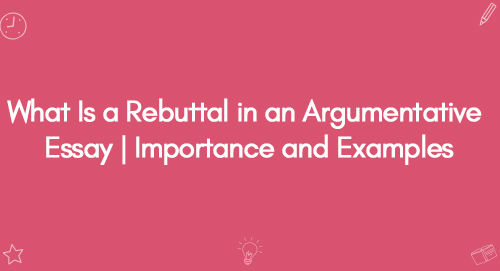
What Is a Rebuttal in an Argumentative Essay | Importance and Examples

Essay Planner Example | Useful Tips and Benefits
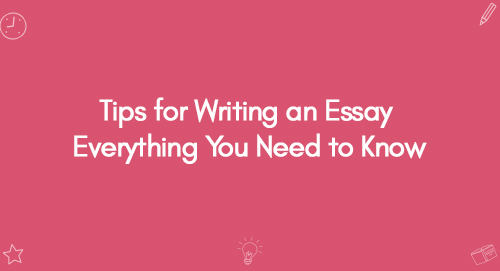
Tips for Writing an Essay | Everything You Need to Know
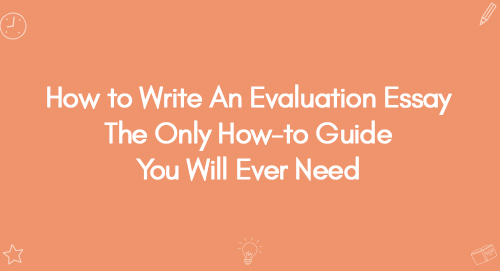
How to Write An Evaluation Essay | The Only How-to Guide You Will Ever Need
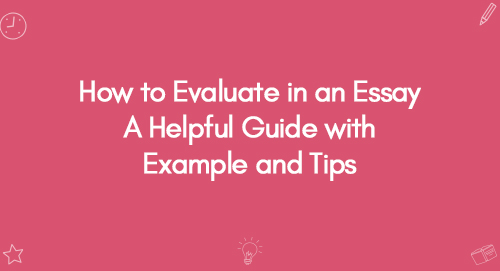
How to Evaluate in an Essay | A Helpful Guide with Example and Tips
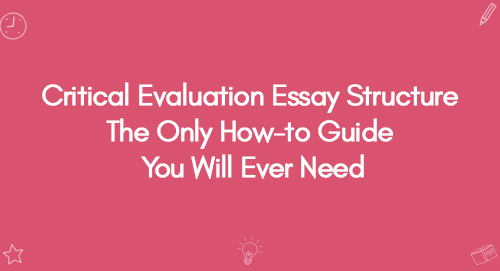
Critical Evaluation Essay Structure | The Only How-to Guide You Will Ever Need
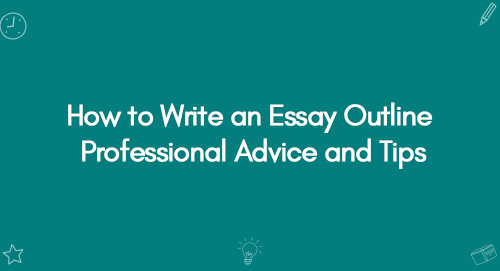
How to Write an Essay Outline | Professional Advice and Tips
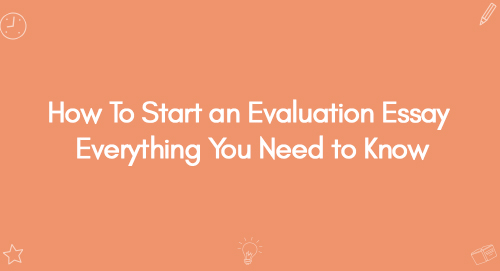
How To Start an Evaluation Essay | Everything You Need to Know
How to write epq essay: a step by step guide with examples, get an experienced writer start working, review our examples before placing an order, learn how to draft academic papers.
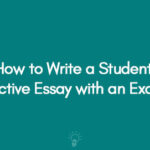
How to Write a Student Reflective Essay: Structure With Example And Tips
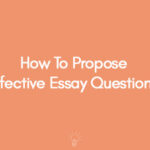
How To Propose Effective Essay Questions? Practical Examples

EPQ essay stands for Extended Project Qualification essay. It is an independent research project undertaken by students, allowing them to explore a topic of their choice in-depth and produce an extended essay enhancing critical thinking and research skills.
As students begin their college assignments, they have to complete an independent research project that is long, intensive, and takes more time to complete.
So by completing EPQ essays, students uncover the ability to develop creative thinking and analytical problem-solving skills that will help them to get into their desired colleges.
Review Our Quality Student Assignment Help Guide
This comprehensive guide aims to provide valuable insights into EPQ essay examples, guiding toward crafting outstanding EPQ essay papers that demonstrate their academic prowess.
Free Premier Essay Writing Topics
Essay Writing is an essential part of academics which presents the ideas, arguments, opinions, or positions of the writer regarding the topic. The writer supports his claims using facts, evidence, or survey studies.
- Clear presentation or understanding of the type of essay
- An appealing introduction with an unambiguous thesis statement
- A well-defined structure of body paragraphs supporting the thesis
A prospective conclusion with an optimistic tone
Pay For Now 9.98$
What is EPQ Essay?
EPQ essays serve as a source of inspiration and guidance for individuals working on their EPQ projects. This write-up showcases the structure, content, and quality of essays that have achieved excellence.
By examining successful EPQ essays, you gain a deeper understanding of effective research methodologies , critical analysis , and compelling presentation techniques.
How to Crafting an Outstanding EPQ Essay?
To create an EPQ essay that stands out, you should consider the following key elements to writing your own EPQ essay:
1. Choosing an Engaging Topic
Select a topic that aligns with your interests, which will keep you motivated throughout the research process . Additionally, ensure that your chosen subject has sufficient academic resources to support your analysis and arguments.
2. Effective Research Methodology
Devise a well-structured research plan encompassing primary and secondary research methods . This will enable you to gather a diverse range of information and perspectives, enhancing the credibility and depth of your essay.

3. Structuring the Essay
Organize your essay into logical sections, including an introduction, methodology, analysis, findings , and conclusion. This coherent structure allows readers to navigate through your work seamlessly, following your arguments and insights effortlessly.
4. Compelling Introduction
Begin your essay with a captivating introduction that clearly states your research question or objective. Engage your readers by providing context, significance, and a glimpse of what they can expect from your essay.
5. Thorough Analysis and Critical Thinking
Demonstrate your analytical skills by critically evaluating your research findings and existing literature. Incorporate different perspectives and theories to enrich your arguments and provide a well-rounded analysis of your topic.
6. Well-Supported Arguments
Back up your claims with credible evidence, such as academic research , case studies , or expert opinions. Ensure that your sources are reliable and properly cited, adhering to academic integrity standards.
7. Coherent Writing Style
Maintain a clear and concise writing style throughout your essay. Use appropriate academic language and terminology to convey your ideas effectively. Avoid excessive jargon and strive for clarity without sacrificing depth.
8. Effective Conclusion
Summarize your key findings and arguments in a concise and impactful conclusion. Emphasize the significance of your research and its potential implications. Leave your readers with a thought-provoking ending that encourages further exploration of the topic.
By incorporating these essential elements, you can create an outstanding EPQ essay that showcases your research skills and academic excellence.

Premier Essays Plagiarism Services
The opinion of a writer based on his knowledge
Writer's stance based on facts Backing claims with statistical data Comparative analysis based on results And many more!

Example EPQ Essay: An Insightful Guide
When it comes to EPQ example essays, one aspect that captures attention is the word count. Many students wonder how to effectively manage an EPQ 5000-word essay example. Fear not, for we have carefully curated a diverse selection of EPQ essay examples to shed light on this matter.
- Abstract: This essay examines the various consequences of climate change on coastal ecosystems, focusing on the ecological disruptions caused by rising sea levels, ocean acidification, and extreme weather events.
- Methodology: The author employs a multidisciplinary approach, combining scientific research, statistical analysis, and case studies to provide a comprehensive evaluation of the subject matter.
- Findings: The essay highlights the vulnerability of coastal ecosystems, emphasizing the urgent need for sustainable practices and environmental conservation measures.
- Conclusion: The author concludes by emphasizing the importance of collective action in mitigating the adverse effects of climate change on coastal ecosystems.
Final Thought
In the pursuit of academic excellence, EPQ essay examples offer a guiding light, enabling individuals to navigate the complexities of research, analysis, and presentation. By harnessing the power of these examples, you can unlock their full potential and produce outstanding work that contributes to the scholarly discourse.
So, let the rich and diverse world of EPQ essay examples inspire and guide you on your academic journey. Harness the power of these examples to unlock your own academic excellence and make a meaningful impact in your chosen field of study.
Related Topics
Generic nouns
Specific nouns
Group nouns
Individual pronouns
- Mass and discrete nouns
Examples
other .
Mass and discrete nouns
Get an Immediate Response
Discuss your requirments with our writers
WhatsApp Us Email Us Chat with Us
Related posts
Leave a reply cancel reply.
Your email address will not be published. Required fields are marked *
Save my name, email, and website in this browser for the next time I comment.
Our Services
College Admissions Counseling
UK University Admissions Counseling
EU University Admissions Counseling
College Athletic Recruitment
Crimson Rise: College Prep for Middle Schoolers
Indigo Research: Online Research Opportunities for High Schoolers
Delta Institute: Work Experience Programs For High Schoolers
Graduate School Admissions Counseling
Private Boarding & Day School Admissions
Online Tutoring
Essay Review
Financial Aid & Merit Scholarships
Our Leaders and Counselors
Our Student Success
Crimson Student Alumni
Our Reviews
Our Scholarships
Careers at Crimson
University Profiles
US College Admissions Calculator
GPA Calculator
Practice Standardized Tests
SAT Practice Test
ACT Practice Tests
Personal Essay Topic Generator
eBooks and Infographics
Crimson YouTube Channel
Summer Apply - Best Summer Programs
Top of the Class Podcast
ACCEPTED! Book by Jamie Beaton
Crimson Global Academy
+1 (646) 419-3178
Go back to all articles
450 Ideas and Everything You Need to Know About the EPQ
/f/64062/1200x630/68147087ae/when-should-i-start-working-on-my-college-applications-2.jpg)
- The EPQ (Extended Project Qualification) is a great way to earn extra UCAS points
- It can be an essay, or it can be an entirely different project
- It has many benefits, especially for students looking at top universities
- You can choose from an endless selection of EPQ topic ideas and EPQ examples with little restrictions
What Could Your EPQ Be?
An EPQ, or Extended Project Qualification, is a project that can be taken on by A-level students, and it’s worth 50% of an A-level.
Your EPQ could be a:
- Dissertation of around 5,000 words
- Project , report or artefact backed up by paper work.
There are little restrictions on what topics could be chosen for your EPQ, as long as it’s approved by your institution. You could target a topic you’re studying, or a topic not taught in an A-level course to demonstrate your interest and intellectual versatility.
Benefits of an EPQ
Some of the best teachers in the world tutor at Crimson! Our expert teachers identified 5 huge benefits that you get out of doing an EPQ:
1. Showcasing Super-Curricular Excellence
Top UK universities look for students who go above and beyond the standard curriculum.
The EPQ allows you to showcase your super-curricular engagement with a favorite academic subject, demonstrating not just knowledge but a genuine passion for learning.
2. Exploring New Subjects
The EPQ gives you an opportunity to study subjects that are not taught at A-level. It gives you a chance to showcase your intellectual versatility, something that top universities love to see .
By exploring a subject not offered at A Level, you exhibit a broad academic curiosity and a hunger for knowledge.
3. Mastering Skills for Academic Success
The EPQ is a golden opportunity to develop independent research, critical thinking, and project management skills – all crucial for thriving in higher education.
When working on your EPQ, you’ll confidently navigate complex research, make informed decisions, and manage a project from inception to completion – skills that set you apart in the competitive admissions landscape.
4. Gaining Additional UCAS Points
In the fierce competition for university spots, every point counts. Completing an EPQ not only enriches your academic profile but also adds those coveted extra UCAS points .
The EPQ could grant you up to an extra 28 UCAS points!
5. Equipping Yourself with Invaluable Transferable Skills
The EPQ is a gateway to acquiring invaluable transferable skills – from effective presentation to confident decision-making.
These skills transcend the classroom, positioning you as a well-rounded candidate prepared to excel both in university and future professional endeavors.
Interested in learning more? Attend one of our free events
How to perfect your academics for top college admissions.
Friday, April 26, 2024 12:00 AM CUT
Learn from a Former Johns Hopkins Admissions Officer about what the Ivy League and other top universities look for in top candidates' academic profiles, and how you can ace it from every angle!
REGISTER NOW
EPQ Examples
As mentioned above, a dissertation or essay is only one way to approach your EPQ. The EPQ opens doors to so many project possibilities, allowing you to explore your interests and showcase your skills in various creative ways.
20 EPQ Examples:
- Documentary Film: Create a visually engaging documentary exploring a historical event, social issue, or scientific phenomenon.
- Podcast Series: Dive into podcasting by producing a series that delves into topics such as literature, culture, or current affairs.
- Art Exhibition: Showcase your artistic talents by curating an exhibition that explores a theme or conveys a message.
- Scientific Experiment: Conduct an in-depth scientific experiment and present your findings, methodology, and conclusions.
- Business Plan: Develop a comprehensive business plan for a startup, considering market analysis, financial projections, and marketing strategies.
- Creative Writing Portfolio: Craft a collection of short stories, poems, or a novel, displaying your creative writing prowess.
- Historical Reenactment: Bring history to life by organizing and participating in a historical reenactment event.
- Mathematical Model: Create a complex mathematical model to solve a real-world problem, demonstrating the practical applications of mathematics.
- Computer Program or App: Develop a functional computer program or mobile app that addresses a specific need or problem.
- Educational Board Game: Design and produce an educational board game aimed at teaching a particular subject or skill.
- Campaign and Advocacy Project: Take on a social or environmental cause, developing and implementing a campaign to raise awareness and provoke change.
- Musical Composition: Compose an original piece of music or a full musical score for a play, film, or even a video game.
- Fashion Collection: Design and create a fashion collection, exploring themes such as sustainability or cultural influences.
- Psychological Experiment: Devise and conduct a psychological experiment, analyzing human behavior or cognitive processes.
- Architectural Model: Create a detailed architectural model for a theoretical building or urban planning project.
- Language Learning App: Develop an app focused on language learning, incorporating innovative features to enhance the learning experience.
- Robotics Project: Build a functional robot, detailing the design process, programming, and potential applications.
- Photography Exhibition: Showcase your photography skills by curating an exhibition with a theme or message.
- Health and Fitness Program: Design a personalized health and fitness program, incorporating nutritional plans and exercise routines.
- Political Analysis Report: Conduct an in-depth analysis of a political issue, policy, or historical event, presenting your findings in a detailed report.

EPQ Ideas
Epq ideas for biology.
- The Impact of Genetic Engineering on Agriculture: A Critical Analysis
- Exploring CRISPR-Cas9 Technology: Revolutionizing Genetic Editing
- The Role of Microbiome in Human Health and Disease
- Comparative Analysis of Plant Adaptations in Different Biomes
- Investigating the Relationship Between Diet and Gut Microbiota
- The Ethics of Cloning: Examining the Bioethical Implications
- The Evolutionary Significance of Biodiversity in Rainforests
- Stem Cell Research: A Breakthrough in Regenerative Medicine
- The Interplay Between Genetics and Environmental Factors in Disease Susceptibility
- Climate Change's Impact on Marine Ecosystems: A Case Study
- The Use of CRISPR in Treating Genetic Disorders
- Understanding the Mechanisms of Antibiotic Resistance in Bacteria
- The Role of Epigenetics in Inheritance and Gene Expression
- Analyzing the Impact of Pesticides on Bee Populations
- The Biochemical Basis of Neurodegenerative Diseases
- Human Evolution: A Comparative Study of Hominid Species
- The CRISPR Revolution: Opportunities and Ethical Dilemmas
- The Application of Synthetic Biology in Medicine
- The Role of Genetics in Cancer: Identifying Biomarkers for Early Detection
- Exploring the Potential of Gene Therapy in Treating Genetic Disorders
- The Impact of Ocean Acidification on Coral Reefs
- Biological Control of Invasive Species: Balancing Ecosystems
- The Connection Between Sleep Patterns and Biological Rhythms
- The Role of Hormones in Human Behavior and Mental Health
- Analyzing the Genetics of Rare Diseases: Implications for Treatment
- Evolutionary Ecology of Predator-Prey Relationships
- The Use of Biotechnology in Crop Improvement and Food Security
- Investigating the Impact of Endocrine Disruptors on Wildlife
- The Microbiome and Immune System: Partners in Health
- Neurobiology of Addiction: Understanding the Biological Basis
EPQ Ideas For Chemistry
- Green Chemistry: Strategies for Sustainable and Eco-Friendly Practices
- Nanotechnology in Medicine: Advancements and Potential Applications
- Analyzing the Chemistry of Taste: Molecular Basis of Flavor Perception
- The Role of Catalysts in Chemical Reactions: A Comprehensive Study
- Synthetic Polymers vs. Biodegradable Polymers: Environmental Impacts
- Investigating the Chemistry of Superfoods and Their Health Benefits
- Applications of Electrochemistry in Energy Storage Devices
- Quantum Dots: Nanoscale Wonders in Electronic and Photonic Devices
- The Chemistry Behind Drug Design and Development
- Chemical Analysis of Air Pollutants: Sources and Solutions
- The Chemistry of Photosynthesis: Unlocking Nature's Energy Secrets
- Metal-Organic Frameworks (MOFs): Applications in Gas Storage and Separation
- Exploring the Chemistry of Perfumes: Molecular Components and Fragrance Design
- The Impact of pH on Enzyme Activity: Understanding Biological Catalysis
- Chemical Kinetics: Investigating Reaction Rates and Mechanisms
- The Chemistry of Art Conservation: Preserving Cultural Heritage
- Catalytic Converters: Mitigating Environmental Impact in Automobiles
- Analytical Chemistry Techniques in Forensic Science: Solving Crimes
- The Chemistry of Food Preservation: From Canning to Refrigeration
- Understanding the Chemistry of Water Treatment Processes
- Molecular Gastronomy: The Science Behind Culinary Innovations
- Supramolecular Chemistry: Designing Complex Molecular Structures
- The Chemistry of Battery Technologies: Advancements and Challenges
- Chemical Warfare Agents: A Historical and Contemporary Perspective
- Exploring the Chemistry of Antioxidants in Health and Wellness
- The Role of Transition Metals in Biological Systems: Bioinorganic Chemistry
- Environmental Impact of Pharmaceuticals: Analyzing Residue in Water Systems
- The Chemistry of Bioluminescence: Illuminating the Natural World
- Chirality in Drug Development: Importance and Challenges
- Chemical Aspects of Brewing: From Hops to Fermentation Processes
EPQ Ideas For Physics
- Quantum Computing: The Future of Information Processing
- Astrophysics and Dark Matter: Unraveling the Cosmic Mystery
- The Physics of Renewable Energy: Exploring Sustainable Power Sources
- String Theory: Investigating the Fundamental Building Blocks of the Universe
- Applications of Quantum Mechanics in Modern Technology
- The Physics of Time Travel: Theoretical Possibilities and Paradoxes
- Nuclear Fusion: Harnessing the Power of the Sun on Earth
- The Role of Physics in Medical Imaging Technologies
- The Physics of Music: Acoustics and Instrument Design
- Quantum Entanglement: Spooky Action at a Distance
- The Search for Extraterrestrial Life: Astrophysical Approaches
- Superconductivity: Applications and Challenges in Technology
- The Physics of Sports: Analyzing the Mechanics Behind Athletic Performance
- Gravitational Waves: Detecting Ripples in Spacetime
- The Physics of Climate Change: Understanding the Science Behind Global Warming
- Particle Physics: Exploring Subatomic Particles and Their Interactions
- The Physics of Fluid Dynamics: Applications in Engineering and Nature
- Theoretical Physics and the Nature of Reality: Einstein's Legacy
- Quantum Teleportation: The Possibilities and Limitations
- The Physics of Traffic Flow: Modeling and Optimization
- Black Holes: Nature's Most Mysterious Cosmic Phenomena
- The Physics of Quantum Computing: Challenges and Breakthroughs
- The Physics of Roller Coasters: Designing Thrilling Rides
- The Role of Physics in Medical Diagnostics: Imaging Techniques
- The Physics of Materials: Properties and Applications
- Chaos Theory: Understanding Nonlinear Dynamical Systems
- The Physics of Nuclear Weapons: Science and Global Security
- The Higgs Boson: Unraveling the Mysteries of Particle Mass
- The Physics of Artificial Intelligence: Quantum Computing Perspectives
- Optical Illusions: Exploring the Physics Behind Visual Deceptions
EPQ Ideas for Computer Science
- Quantum Computing: Promises, Challenges, and Potential Applications
- Ethical Considerations in Artificial Intelligence: Bias, Accountability, and Transparency
- Blockchain Technology: Beyond Cryptocurrencies
- Cybersecurity Threats and Countermeasures in the Digital Age
- The Impact of Machine Learning on Healthcare: Diagnostics and Treatment
- Human-Computer Interaction: Designing User-Friendly Interfaces
- The Evolution of Programming Languages: From Assembly to High-Level Languages
- Augmented Reality (AR) and Virtual Reality (VR): Applications and Future Trends
- The Role of Artificial Intelligence in Autonomous Vehicles
- Natural Language Processing: Challenges and Advances in Language Understanding
- Quantum Cryptography: Securing Communication with Quantum Mechanics
- The Ethics of Data Collection and Privacy in the Internet Age
- The Rise of Edge Computing: Redefining Cloud Computing Architectures
- Algorithmic Trading: The Impact of Automated Systems on Financial Markets
- Computer Vision: Applications in Image Recognition and Analysis
- The Intersection of Robotics and Artificial Intelligence: Creating Intelligent Machines
- Big Data Analytics in Business: Extracting Insights from Large Datasets
- The Role of Machine Learning in Predictive Policing: Benefits and Concerns
- The Future of Quantum Internet: Secure Communication with Quantum Entanglement
- Deep Learning: Neural Networks and Their Applications
- The Dark Web: Unveiling the Hidden Layers of the Internet
- The Impact of 5G Technology on Communication and Connectivity
- Programming Quantum Computers: Challenges and Opportunities
- The Role of Computer Science in Climate Modeling and Environmental Studies
- Voice Recognition Technology: Advancements and Challenges
- E-Learning Platforms: The Integration of Technology in Education
- The Role of Artificial Intelligence in Drug Discovery and Development
- Digital Forensics: Investigating Cyber Crimes and Security Breaches
- Internet of Things (IoT): Connecting Devices for a Smart Future
- Computer-Aided Design (CAD): Revolutionizing Engineering and Architecture
EPQ Ideas For Law
- The Impact of Cybercrime Laws on Digital Privacy
- Analyzing the Efficacy of International Human Rights Treaties
- The Legal Implications of Artificial Intelligence and Robotics
- The Role of Constitutional Law in Shaping National Policies
- The Evolution of Criminal Law: From Traditional to Cyber Crimes
- Exploring the Legal and Ethical Dimensions of Euthanasia
- The Intersection of Law and Medicine: Medical Malpractice Cases
- Copyright Law in the Digital Age: Challenges and Solutions
- The Legal Status of Environmental Rights and Responsibilities
- Comparative Analysis of Legal Systems: Civil Law vs. Common Law
- The Impact of Social Media on Defamation Laws
- Legal Issues Surrounding Genetic Engineering and Human Cloning
- The Role of International Law in Addressing Climate Change
- The Legal Implications of Biometric Data Collection and Use
- Examining the Role of Legal Precedent in Judicial Decision-Making
- The Legalization of Marijuana: Impacts on Society and Legislation
- The Relationship Between Law and Economics: A Critical Analysis
- The Rights of Indigenous Peoples: Legal Protections and Challenges
- The Legal Dimensions of Cybersecurity: Policies and Practices
- The Impact of Artificial Intelligence on Intellectual Property Law
- The Legal Implications of Mass Surveillance Programs
- The Role of International Criminal Law in Addressing War Crimes
- Laws Governing Digital Currency and Cryptocurrencies
- The Legal and Ethical Issues of DNA Profiling in Criminal Investigations
- The Legal Status of Privacy in the Workplace
- The Intersection of Law and Technology: Challenges in the Digital Age
- LGBTQ+ Rights: Legal Progress and Ongoing Challenges
- The Legal Implications of Autonomous Vehicles on Traffic Laws
- Legal Issues Surrounding Data Privacy and Social Media Platforms
- The Role of Legal Ethics in the Practice of Law
EPQ Ideas for Psychology
- The Influence of Social Media on Mental Health: A Psychological Perspective
- Exploring the Relationship Between Sleep Patterns and Cognitive Functioning
- The Impact of Childhood Trauma on Adult Mental Health
- The Psychology of Addiction: Understanding Behavioral and Substance Dependencies
- The Role of Positive Psychology in Promoting Well-being and Happiness
- Analyzing the Effects of Video Games on Aggression and Behavior
- The Psychological Effects of Social Isolation and Loneliness
- The Intersection of Psychology and Artificial Intelligence: Ethical Considerations
- The Psychology of Decision-Making: Factors Influencing Choices
- Understanding the Psychological Impact of Chronic Illness on Patients
- The Relationship Between Personality and Career Choice: A Longitudinal Study
- The Influence of Parenting Styles on Child Development
- The Psychology of Prejudice and Discrimination: Exploring Implicit Bias
- The Effects of Mindfulness and Meditation on Mental Health
- The Psychology of Procrastination: Causes and Interventions
- Exploring the Connection Between Music and Mood: The Emotional Power of Music
- The Impact of Technology on Cognitive Development in Children
- The Psychology of Body Image: Media Influence and Societal Standards
- The Role of Attachment Theory in Understanding Interpersonal Relationships
- The Psychology of Leadership: Traits and Behaviors of Effective Leaders
- Analyzing the Psychological Factors Contributing to Eating Disorders
- The Influence of Gender Stereotypes on Career Choices: A Psychological Perspective
- The Psychology of Resilience: Coping Mechanisms in the Face of Adversity
- The Effects of Cognitive-Behavioral Therapy on Anxiety and Depression
- The Psychological Impact of Environmental Factors on Human Behavior
- The Relationship Between Personality Traits and Academic Achievement
- The Role of Psychology in Criminal Profiling and Investigative Techniques
- The Psychological Effects of Virtual Reality: Immersion and Presence
- Understanding the Psychology of Humor: The Cognitive and Emotional Aspects
- The Impact of Social Support on Mental Health Outcomes: A Comprehensive Study
EPQ Ideas for History
- The Impact of the Industrial Revolution on Society and Economy
- The Role of Women in Ancient Civilizations: A Comparative Study
- The Causes and Consequences of World War I: A Comprehensive Analysis
- The Significance of the Renaissance in European Cultural and Intellectual History
- The Legacy of Colonialism in Modern Africa: Social and Economic Impacts
- The Cultural and Political Effects of the Black Death in Medieval Europe
- The Rise and Fall of Ancient Empires: A Comparative Study of Rome and Persia
- The Harlem Renaissance: Cultural Flourishing in 1920s America
- The Impact of the Silk Road on Global Trade and Cultural Exchange
- The Cuban Missile Crisis: Cold War Tensions and Nuclear Diplomacy
- The Enlightenment and Its Influence on Modern Political Thought
- The Reconstruction Era in the United States: Successes, Failures, and Legacies
- The Role of Propaganda in Shaping Public Opinion During World War II
- The Cultural Revolution in China: Socio-Political Changes and Consequences
- The Mayan Civilization: Achievements, Decline, and Cultural Legacy
- The Causes and Effects of the French Revolution: A Historical Analysis
- The Role of Religion in Shaping Medieval European Society
- The Vietnam War: Causes, Course, and Legacy
- The Impact of the Bubonic Plague on Medieval European Society
- The Transatlantic Slave Trade: Historical Roots and Lasting Effects
- The Suffragette Movement: Women's Struggle for Voting Rights
- The Partition of India: Historical Roots and Socio-Political Consequences
- The Cold War Space Race: Scientific Achievements and Political Rivalry
- The Cultural Exchange Along the Silk Road: Art, Religion, and Ideas
- The Opium Wars in China: Imperialism and Its Consequences
- The Golden Age of Islamic Civilization: Contributions to Science, Art, and Philosophy
- The Crusades: Causes, Course, and Long-Term Effects
- The Impact of the Great Depression on Global Economies
- The Roman Empire and Its Legacy: Contributions to Law, Engineering, and Governance
- The Zulu Kingdom: Rise, Expansion, and Resistance to Colonial Rule
EPQ Ideas for Mathematics
- The P versus NP Problem: Unraveling the Complexity of Algorithms
- Fermat's Last Theorem: From Conjecture to Proof
- Fractals in Nature and Art: Exploring Mathematical Patterns
- Game Theory and Its Applications in Economics and Decision-Making
- The Riemann Hypothesis: A Deep Dive into Number Theory
- Graph Theory: Applications in Network Analysis and Optimization
- The Beauty of Mathematical Symmetry: Aesthetic and Structural Significance
- The Four Color Theorem: Coloring Maps with the Fewest Colors
- The Mathematics of Cryptography: Ensuring Information Security
- Knot Theory: Unraveling the Mathematics of Tangles and Knots
- The History and Impact of Calculus on Science and Engineering
- Prime Numbers and Cryptography: The RSA Algorithm
- The Applications of Probability Theory in Real-world Scenarios
- The Mathematics of Music: Harmonic Analysis and Composition
- Coding Theory: Error Detection and Correction in Data Transmission
- The Golden Ratio: Its Presence in Art, Architecture, and Nature
- The Traveling Salesman Problem: Optimization in Route Planning
- Hyperbolic Geometry: A Non-Euclidean Approach to Geometry
- The Application of Fourier Analysis in Signal Processing
- The Navier-Stokes Equations: Challenges in Fluid Dynamics
- The Mathematics of Climate Modeling: Understanding Global Patterns
- Zero Knowledge Proofs: Enhancing Security in Cryptography
- Combinatorial Game Theory: Strategies and Winning Strategies
- The Application of Fibonacci Numbers in Nature and Mathematics
- The Mathematics of Artificial Intelligence: Algorithms and Learning Models
- The Collatz Conjecture: An Unresolved Problem in Number Theory
- Mathematics in Ancient Civilizations: Contributions and Discoveries
- The Role of Topology in Understanding Shapes and Spaces
- The Mathematics of Quantum Mechanics: Probability and Wave Functions
EPQ Ideas for Film Studies
- The Evolution of Film Genres: A Comparative Analysis of Classic and Contemporary Approaches
- The Impact of Streaming Services on the Film Industry: Challenges and Opportunities
- The Representation of Gender and Sexuality in Contemporary Cinema
- Cinematic Adaptations of Literature: Analyzing the Translation from Page to Screen
- The Influence of Film Scores on Audience Perception and Emotional Engagement
- The Role of Film Festivals in Shaping Global Cinema and Cultural Exchange
- The Art of Cinematography: Exploring the Work of Influential Cinematographers
- The Rise of Independent Cinema: A Critical Examination of Indie Filmmaking
- The Use of Color in Film: Symbolism and Visual Storytelling
- The Impact of Digital Technology on Film Production and Special Effects
- The Representation of Mental Health Issues in Cinema: A Critical Analysis
- Film Censorship: Examining the Ethics and Implications of Content Regulation
- The Auteur Theory: Analyzing the Creative Vision of Film Directors
- The Portrayal of Historical Events in Film: Accuracy and Interpretation
- The Influence of Cultural Diversity on Film Narratives and Storytelling
- The Golden Age of Hollywood: Examining the Studio System and its Legacy
- The Impact of Social Media on Film Promotion and Audience Reception
- The Role of Sound Design in Film: Enhancing Narrative and Atmosphere
- Cinematic Representations of Identity: Race, Ethnicity, and Nationality
- The Use of Symbolism in Surrealist Cinema: A Study of Visual Metaphors
- The Influence of French New Wave Cinema on Filmmaking Techniques
- The Role of Costume Design in Period Films: Creating Authenticity
- Cinematic Depictions of War: Propaganda, Realism, and Anti-War Messages
- The Impact of Film on Cultural Memory: Examining Cinematic Histories
- The Intersection of Animation and Technology: Innovations and Trends
- The Representation of LGBTQ+ Characters in Mainstream Cinema
- The Legacy of Silent Cinema: Influence on Contemporary Filmmaking
- Cinematic Depictions of Artificial Intelligence and Robotics: Ethical Considerations
- The Use of Film as a Form of Political Activism: Case Studies and Analysis
- The Influence of Film Noir on Modern Crime and Mystery Genres
EPQ Ideas for Business
- The Impact of E-commerce on Traditional Retail: A Comparative Analysis
- Corporate Social Responsibility: Assessing its Role in Business Ethics
- The Rise of Gig Economy: Implications for Workers and Businesses
- Digital Marketing Strategies: A Comparative Study of Successful Campaigns
- The Role of Artificial Intelligence in Business Decision-Making
- The Influence of Globalization on Small and Medium-sized Enterprises (SMEs)
- The Future of Work: Examining Trends in Remote Work and Flexibility
- Entrepreneurship in the Digital Age: Navigating Challenges and Opportunities
- The Impact of COVID-19 on Business Models and Economic Resilience
- Strategic Management: Analyzing the Approaches of Successful Companies
- The Role of Emotional Intelligence in Leadership and Organizational Success
- Supply Chain Resilience: Lessons Learned from Global Disruptions
- Corporate Governance: Evaluating the Relationship Between Boards and Performance
- The Role of Innovation in Sustainable Business Practices
- The Effects of Consumer Behavior on Marketing Strategies and Branding
- Business Analytics: Leveraging Data for Informed Decision-Making
- The Impact of Diversity and Inclusion on Organizational Performance
- The Circular Economy: Shifting Towards Sustainable Business Practices
- Financial Technology (Fintech): Revolutionizing the Banking and Finance Industry
- Strategies for Managing Organizational Change: Case Studies and Best Practices
- The Role of Leadership Styles in Organizational Culture and Productivity
- The Influence of Corporate Culture on Employee Engagement and Performance
- Economic Impact of Mergers and Acquisitions: A Comparative Analysis
- The Role of Branding in Consumer Loyalty and Market Positioning
- The Integration of Blockchain Technology in Business Operations
- Corporate Innovation: Strategies for Fostering Creativity and Adaptability
- The Impact of Trade Policies on Global Business Operations
- Evaluating the Effectiveness of Employee Training and Development Programs
- Business Resilience in Times of Crisis: Strategies for Sustainability
- The Role of Customer Relationship Management (CRM) Systems in Enhancing Business Success
EPQ Ideas for Medicine
- The Role of Artificial Intelligence in Diagnosing Medical Conditions
- The Impact of Telemedicine on Healthcare Accessibility
- Precision Medicine: Tailoring Treatments Based on Genetic Factors
- Exploring the Ethics of Human Gene Editing in Medicine
- The Relationship Between Gut Microbiota and Mental Health
- Analyzing the Effectiveness of Vaccination Programs in Preventing Diseases
- The Role of Stem Cell Therapy in Regenerative Medicine
- The Implications of CRISPR Technology in Genetic Medicine
- The Use of Nanomedicine in Cancer Treatment
- The Psychological Impact of Chronic Illness on Patients
- Global Health Disparities: Challenges and Solutions
- The Role of Artificial Organs in Transplantation Medicine
- The Intersection of Medicine and Artificial Intelligence in Imaging Diagnosis
- The Impact of Lifestyle Factors on Cardiovascular Health
- The Rise of Antibiotic Resistance: Causes and Strategies for Mitigation
- The Role of Epigenetics in Disease Development and Prevention
- The Ethics of Organ Transplantation: Allocation and Donor Criteria
- The Influence of Socioeconomic Factors on Healthcare Disparities
- The Use of Virtual Reality in Medical Training and Patient Care
- The Relationship Between Mental Health and Inflammatory Disorders
- Exploring the Potential of CRISPR in Treating Genetic Disorders
- The Impact of Climate Change on the Spread of Infectious Diseases
- The Application of 3D Printing in Medicine: Customized Implants and Prosthetics
- The Role of Medical Imaging in Early Disease Detection
- The Ethical Considerations of Human Cloning in Medicine
- The Effects of Sleep Deprivation on Cognitive Function and Mental Health
- The Use of Robotics in Surgery: Advancements and Challenges
- The Psychological Factors in Patient Adherence to Treatment Plans
- The Impact of Social Determinants on Maternal and Child Health
EPQ Ideas for Engineering
- The Future of Sustainable Transportation: Electric Vehicles and Beyond
- Smart Cities: Integrating Technology for Urban Development
- The Role of Artificial Intelligence in Engineering Design and Automation
- Renewable Energy Integration into the Power Grid: Challenges and Solutions
- Biomimicry in Engineering: Learning from Nature for Innovative Design
- 3D Printing in Aerospace: Advancements and Applications
- The Impact of Internet of Things (IoT) on Industrial Automation
- The Use of Drones in Civil Engineering: Monitoring and Surveying
- Hydraulic Fracturing (Fracking): Engineering Challenges and Environmental Impacts
- The Advancements in Materials Science for Aerospace Applications
- Designing Resilient Infrastructure: Strategies for Mitigating Natural Disasters
- The Role of Engineers in Space Exploration: Challenges and Contributions
- The Integration of Blockchain Technology in Engineering Systems
- The Ethics of Artificial Intelligence in Autonomous Vehicles
- The Future of High-Speed Rail: Technological Developments and Challenges
- Biomedical Engineering: Innovations in Medical Devices and Prosthetics
- The Use of Virtual Reality in Engineering Design and Simulation
- The Impact of Climate Change on Civil Engineering Infrastructure
- The Potential of Quantum Computing in Solving Complex Engineering Problems
- Carbon Capture and Storage: Engineering Solutions for Climate Change
- The Application of Machine Learning in Structural Health Monitoring
- The Role of Engineers in Disaster Response and Emergency Management
- Human-Centric Design in Robotics: Enhancing Human-Machine Interaction
- The Challenges and Opportunities in Developing Smart Grids
- The Integration of Artificial Intelligence in Healthcare Engineering
- The Impact of 5G Technology on Communication Networks and Infrastructure
- The Engineering Behind Sustainable Architecture and Building Design
- The Future of Transportation: Hyperloop Technology and Maglev Trains
- The Role of Engineering in Water Treatment and Environmental Conservation
- The Challenges of Cybersecurity in Critical Infrastructure Systems
EPQ Ideas for Teaching
- The Impact of Technology on Classroom Learning: Opportunities and Challenges
- Inclusive Education: Strategies for Catering to Diverse Learning Needs
- The Role of Emotional Intelligence in Effective Teaching Practices
- Examining the Efficacy of Flipped Classroom Models in Education
- The Influence of Teacher Expectations on Student Performance
- Integrating Social-Emotional Learning (SEL) into the Curriculum
- The Use of Gamification in Education: Engaging Students through Games
- Exploring the Benefits and Challenges of Remote Teaching and Learning
- Culturally Responsive Teaching: Creating Inclusive and Equitable Classrooms
- The Impact of Early Childhood Education on Cognitive Development
- Teacher Burnout: Causes, Prevention, and Strategies for Well-being
- Assessment Methods in Education: A Comparative Analysis
- The Role of Mindfulness in Teacher Professional Development
- Parental Involvement in Education: Its Influence on Student Success
- The Integration of Project-Based Learning in the Classroom
- The Effectiveness of Cooperative Learning Strategies in Primary Education
- Teacher-Student Relationships: Their Impact on Academic Achievement
- The Influence of Educational Leadership on School Culture
- The Impact of Standardized Testing on Curriculum and Instruction
- The Role of Educational Technology in Special Education
- The Importance of Teacher Training in Addressing Learning Disabilities
- The Psychology of Motivation in Education: Strategies for Student Engagement
- Promoting Critical Thinking in the Classroom: Strategies and Approaches
- Teacher Professional Development: Models for Continuous Learning
- The Benefits of Outdoor Education: Enhancing Learning through Nature
- The Role of Educational Psychology in Teaching and Learning
- Innovative Teaching Methods: Exploring Unconventional Approaches
- The Impact of Socioeconomic Factors on Educational Attainment
- The Influence of Teacher Feedback on Student Performance
- Educational Policies: Examining Their Effects on Classroom Practices
EPQ Ideas for Art
- The Evolution of Street Art: From Vandalism to Recognized Art Form
- Art and Activism: The Role of Visual Arts in Social Change
- Analyzing the Impact of Technology on Contemporary Art Practices
- The Influence of Cultural Diversity on Artistic Expression
- The Relationship Between Art and Mental Health: Exploring Therapeutic Benefits
- Art Conservation and Restoration: Balancing Preservation and Intervention
- The Intersection of Art and Artificial Intelligence: Creative Collaborations
- Feminist Art Movements: Examining Gender Representation in Art
- Surrealism in Contemporary Art: Resurgence and Modern Interpretations
- The Influence of Japanese Woodblock Prints on Western Art
- The Role of Public Art Installations in Urban Spaces
- The Representation of Identity in Contemporary Portraiture
- Exploring the Aesthetics of Environmental Art: Eco-conscious Creations
- The Impact of Photography on Traditional Painting: A Comparative Study
- Digital Art: Challenges and Opportunities in the Age of Technology
- The Psychological Impact of Color in Visual Arts: A Cross-Cultural Analysis
- Street Photography: Documenting Urban Life Through the Lens
- The Legacy of Abstract Expressionism: Influences on Contemporary Art
- The Role of Art in Holocaust Memorials and Commemoration
- Art as a Form of Protest: Examining Political Artistic Movements
- Cubism and Beyond: The Influence of Geometric Abstraction in Art
- The Impact of Social Media on Contemporary Art Practices
- The Intersection of Art and Science: Bioart and Technological Innovations
- Artistic Responses to Global Crises: War, Pandemics, and Climate Change
- The Representation of Women in Renaissance Art: Challenging Stereotypes
- Graffiti as an Artistic Expression: Breaking Down Stereotypes
- The Art Market: Commercialization and its Effects on Artistic Integrity
- The Influence of Indigenous Art on Modern and Contemporary Art Movements
- The Role of Museums in Shaping Artistic Discourse and Public Perception
- Art and Philosophy: Exploring the Relationship Between Visual and Conceptual Expression
EPQ Ideas for Politics
- The Impact of Social Media on Political Campaigns and Public Opinion
- Globalization and Its Effects on National Sovereignty
- The Rise of Populism: Causes, Consequences, and Challenges
- The Role of Women in Politics: Breaking Barriers and Redefining Leadership
- Climate Change Policy: Assessing International Cooperation and Challenges
- The Impact of Political Polarization on Democracy
- The Role of Non-Governmental Organizations (NGOs) in International Relations
- Examining the Effectiveness of Electoral Systems: Proportional Representation vs. First-Past-The-Post
- The Ethics of Political Lobbying: Balancing Influence and Transparency
- The Relationship Between Economic Inequality and Political Instability
- Human Rights in the Digital Age: Challenges and Protections
- The Impact of Political Advertising on Voter Behavior
- The Influence of Political Cartoons on Public Perception
- Nationalism vs. Globalism: Debates and Implications in Contemporary Politics
- The Role of Political Satire in Shaping Public Discourse
- The Evolution of International Institutions: United Nations and Beyond
- The Impact of Cyber Warfare on International Relations
- The Rise of Authoritarianism: Global Trends and Regional Variances
- The Relationship Between Religion and Politics: Secularism vs. Theocracy
- Political Corruption: Causes, Consequences, and Strategies for Prevention
- The Politics of Immigration: National Security, Humanitarian Concerns, and Economic Impact
- The Impact of Disinformation on Elections and Democratic Processes
- The Role of Supranational Organizations in Shaping Global Governance
- The Politics of Climate Change: International Agreements and Domestic Policies
- The Influence of Political Ideologies on Policy Decision-Making
- The Role of Political Satire in Challenging Authoritarian Regimes
- The Impact of Political Activism and Protest Movements on Policy Change
- The Politics of Identity: Ethnicity, Race, and Nationalism
- The Role of Youth in Shaping Political Movements and Change
- The Impact of Artificial Intelligence on Political Decision-Making

How Many UCAS Points are in an EPQ?
The EPQ carries up to 28 UCAS points, depending on what grade you achieve.
Essentially, the EPQ is worth half the UCAS points of an A-level. Here are the different UCAS points you’ll get for different grades on your EPQ:
How Many UCAS Points in an EPQ?
Is the epq the right step for you.
An EPQ is time consuming, but the UCAS points and its other benefits could very well be worth the effort.
The question you’ll need to ask yourself is can you comfortably dedicate the time needed for it? Are the extra UCAS points needed for your dream university?
Speak with one of our expert advisors to find out if an EPQ is the right step for the perfect application. Students working with Crimson are 7x more likely to gain admission to their dream university!
What Makes Crimson Different
More Articles
Bridging systems and continents: converting your a levels to gpa.
/f/64062/1920x800/bcfaaed3b9/us-uk-university-admissions-storyblok-header.png)
Everything You Need To Know About the A-Levels
/f/64062/550x350/8f1ebb3372/studying-4.jpg)
IB vs. A-Level: Which Path Should You Choose for Your High School Education?
/f/90801/1200x630/d9c6c0c5c8/university-app-feat.png)
Crimson students are 7x more likely to gain acceptance to their dream college!
Remember, you don't have to navigate this journey alone. crimson provides a comprehensive suite of services, from academic mentoring and test prep to essay assistance, extracurricular guidance, and career mentoring, ensuring a holistic approach to your college preparation journey..

400+ EPQ Ideas and Examples for All Subjects (2024)
Stuck on EPQ ideas? We have created a complete guide with over 400 EPQ ideas and examples to help you get an A*!
The Extended Project Qualification (EPQ) is a unique opportunity for students to explore a topic of their choosing and develop research and independent study skills. Offered to students in their final year of A-Levels , the EPQ is a valuable addition to any student's academic portfolio, as it provides an opportunity to demonstrate skills in critical thinking, research, and project management that are highly valued by universities and employers alike.
Arguably the best part about the EPQ is that you get to select your own ideas for your project. And the worst part? You have to select your own ideas for your project. For most people, their EPQs are the first time they get to explore their chosen area of interest in depth. Save for some requirements, you can technically take this project in any direction you fancy. But this level of freedom can be daunting, especially when you have to choose a project idea and title.
What makes for a good title? Are there any limitations? How can you make your project stand out? Let’s find out how to get an A* in your EPQ in 2024!
How to Choose A Good EPQ Idea
The EPQ assessment criteria are a good reference point to embark on your EPQ journey. Across these four assessment objective areas, you’re able to get a feel for what sort of thing the examiners are looking for.
Touching on each of these, a student that wants an A* in EPQ would need to:
- AO1 - Understand how to plan out a project thoroughly and then execute that plan.
- AO2 - Navigate their own research, as well as understand how to break down other academic pieces to extract information that supports their project.
- AO3 - Solve problems using skills like planning, logic, researching, or new technologies that they encounter during their EPQ project. This is the area where students get the most marks, meaning great EPQ ideas should always have a level of development and progression to them. How are you getting from points A-B?
- AO4 - Within the EPQ essay, students need to be able to accurately review their entire project, outlining the curves in the road and any blocks that they overcame to get to their final destination.
Across these assessment areas, EPQ students will have their ideas tested and explored. The brilliance of a great EPQ idea is that students can explore a topic that they find interesting, all while strengthening their university application.
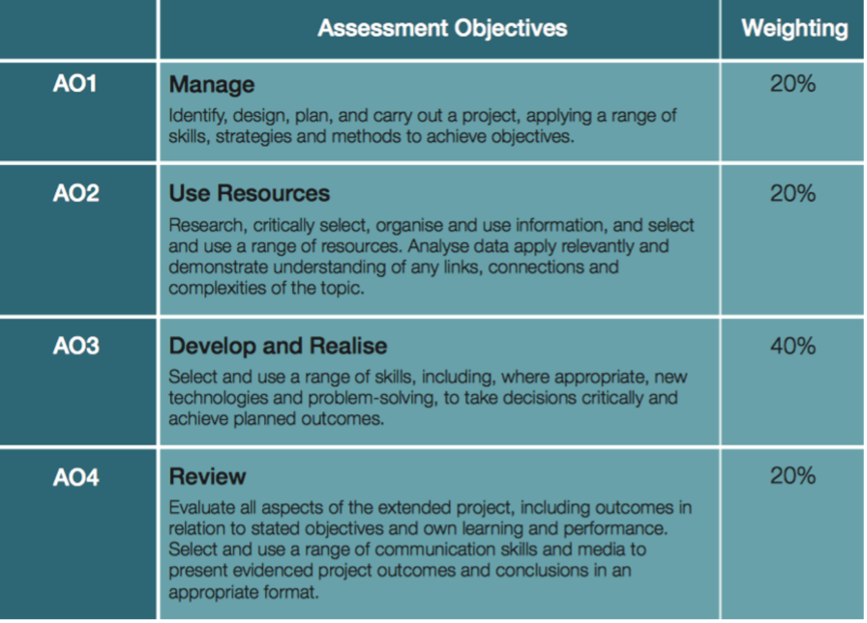
Source - EPQ Assessment Criteria
However, the rubric isn’t enough to tell you whether your idea is any good to begin with. Instead, here are some key pointers you can use to guarantee an A*.
The best EPQ ideas share the following criteria:
- Relevant Ideas
- Narrow Scope
- Interdisciplinary
- Push boundaries
Let’s break these down further.
Make It Relevant
A good EPQ research project is one that is relevant to the context of the modern world. Now, this doesn’t mean that you can’t orient your project around historical events. On the contrary, referring to the past is a great way of substantiating your project. The key, however, is to link it to issues of contemporary relevance. For example, you can use historical plagues to analyse the long-term effects of COVID-19.
Understanding how your topic has an impact on the modern world, or could have a direct effect on the future, is a great way of including this level of relevancy. If you’re doing a history EPQ, you don’t want to only focus on what happened, you want to explain why this matters.
You should carry this idea throughout the whole of your EPQ, ensuring that your project is relevant and ticks all the assessment objective boxes.
Narrow It Down
Some research projects are so extensive in their scope that making them relevant to the modern context isn’t enough. Instead, you have to narrow your EPQ research down to a specific country, city, or even a community. Remember: you can’t possibly tackle all issues in all countries across all members of society. Otherwise, your research becomes too generalising and consequently loses its merit.
There’s a subtle balance between breadth and depth when it comes to choosing an EPQ idea. On one hand, you want to pick something that’s broad enough that you have lots to talk about. Yet, go too broad and you’ll have too much to say in too few words, leading to a shallow analysis. We suggest that you pick an idea that has a narrow focus but one that you can talk about from multiple perspectives.
Try to balance breadth and depth within your EPQ project.
Adopt An Interdisciplinary Approach
You’ll notice that most of the ideas listed in this post are interdisciplinary. In other words, they borrow from various disciplines and subjects. This leads on directly from having a good balance of breadth and depth. Instead of just focusing on one small detail, noticing how topics transect different subjects is a vital part of the EPQ.
Of course, you’d be hard-pressed to find a topic that has absolutely nothing to do with any other subject than itself. Even when focusing on a scientific question, the interdisciplinary links across sciences, health studies, and medicine, allow students to broaden their approach.
Always try and choose an EPQ idea that has interdisciplinary studies at its center. There are always common links across subjects, you just have to find them.
Get expert help with the EPQ
The world's leading online EPQ tutoring provider trusted by students, parents, and schools globally.
4.92 /5 based on 477 reviews
Step Outside Your Comfort Zone
While you should stick to your interests, by and large, a good EPQ is one where you learn something new or develop a new skill. The only way to do so is by stepping outside your comfort zone and pursuing topics that are somewhat unfamiliar to you. If you’re still unsure about where or how to begin, enlisting the help of A-Level EPQ tutors is a good first step.
Working with an A-Level tutor for your EPQ can help boost your final grade as you’ll have a person to discuss your ideas with at every step of your project. Even when finding an initial idea, having someone to bounce thoughts off is vital when finding the right topic for you.
List of the Best EPQ Ideas
Now that we’ve covered the foundations of what makes a good idea, let’s give you some inspiration. We’ll move through different subjects, giving a list of ideas that you could use for your project.
In this article, we’ll touch on the following subjects for EPQ Ideas:
- A-Level Biology
- A-Level Physics
- A-Level Chemistry
- A-Level Maths
- A-Level History
- A-Level Geography
- A-Level English
- A-Level Economics
- A-Level Engineering
- A-Level Politics
- A-Level Sociology
- A-Level Psychology
- A-Level Law
- A-Level Computer Science
- A-Level Medicine
EPQ Ideas For Biology
Explore these EPQ ideas, endorsed by experienced A-Level Biology tutors :
1 - Are there any long-term psychological effects that may be had by a recipient of another person’s organ? 2 - How do diseases develop mutants? 3 - At what point after conception does life actually begin? 4 - Nature vs nurture causes of body dysmorphia 5 - To what extent do menstrual pains and other period symptoms count as legitimate medical handicaps? 6 - The cause and effect of misdiagnosis/late diagnosis of autism in women 7 - How does smoking marijuana from a young age affect brain development? 8 - A comparison of sex and gender dynamics between humans and other species 9 - What solutions does medical biotechnology present for the COVID-19 pandemic? 10 - How does obesity differ in distinct populations around the world? 11 - The effects of plastic pollution on marine biodiversity 12 - Analysing the role of the microbiome in human health and disease 13 - Investigating the impact of climate change on bird migration patterns 14 - How do different types of exercise affect the human body? 15 - A study of the genetics and environmental factors of addiction 16 - Investigating the role of epigenetics in cancer development 17 - Analysing the effects of air pollution on respiratory health 18 - A study of the evolutionary origins of language in humans 19 - Investigating the effectiveness of different types of birth control methods 20 - Examining the ethical implications of genetically modified organisms (GMOs) in food production 21 - Analysing the impact of sleep deprivation on cognitive function 22 - Investigating the relationship between stress and physical health 23 - A study of the genetics and environmental factors of Alzheimer's disease 24 - Examining the effects of different diets on gut microbiota 25 - Investigating the role of the immune system in autoimmune diseases 26 - Analysing the impact of deforestation on wildlife populations 27 - A study of the molecular mechanisms of addiction 28 - Investigating the effects of environmental toxins on reproductive health 29 - Examining the relationship between gut microbiota and mental health disorders 30 - Analysing the effectiveness of various cancer treatments.
EPQ Ideas For Physics
Discover EPQ topics suggested by professional A-Level Physics tutors :
1 - How early contributions by physicists belonging to a marginalised community (women, PoC, etc.) have been dismissed. 2 - Design and build a functional robot with a particular purpose 3 - Can physics and religion ever go hand in hand? 4 - In an unimaginably colossal cosmos, is life on other planets really that unlikely? 5 - An analysis of the scientific accuracy of select scenes from Interstellar (or any physics-based movie, TV show, cartoon, etc.) 6 - The death of the sun and its potential effects on the solar system 7 - The reasons behind the failure of supersonic travel 8 - Build your own camera lens from scratch 9 - Will lithium-ion batteries dominate the world in the next 30 years? 10 - Is switching to clean energy feasible for developing countries? 11 - Investigating the feasibility of using nuclear fusion as a future energy source 12 - Exploring the physics behind black holes and their effects on space-time 13 - Examining the possibility of time travel and the physics involved 14 - Designing and testing a new type of wind turbine for more efficient energy generation 15 - Investigating the physics behind the behaviour of quantum particles 16 - Building and testing a model rocket to explore the principles of rocket science 17 - Analysing the physics of sound and music production 18 - Investigating the physics behind the formation and behaviour of lightning 19 - The potential applications and limitations of nanotechnology in the field of medicine 20 - Examining the physics behind the development and potential uses of augmented reality technology 21 - Investigating the physics behind the phenomenon of superconductivity and its practical applications 22 - Designing and building a solar-powered vehicle for sustainable transportation 23 - Exploring the physics of magnetism and its applications in technology 24 - Investigating the physics behind the development and potential uses of quantum computers 25 - Analysing the physics of the human body and its potential applications in medicine 26 - Investigating the physics behind the development and potential uses of artificial intelligence 27 - Exploring the physics of space travel and its potential for future human exploration 28 - Investigating the physics behind the development and potential uses of 3D printing technology 29 - The physics behind the behaviour of waves in the ocean and its applications in marine engineering 30 - Examining the physics behind the development and potential uses of drones in various industries.
EPQ Ideas For Chemistry
Review these EPQ ideas, curated by expert A-Level Chemistry tutors for in-depth study:
1 - Investigating the chemistry of drug development in the pharmaceutical industry 2 - A guide on how to read and understand the listed ingredients at the back of self-grooming products. 3 - The extraction of limonene from citrus 4 - Will humans ever stop producing plastic? 5 - Is the use of chemical and mechanical pesticides ethical? 6 - The safety of aspartame in food and drink 7 - Can the chemistry of the atmosphere ever truly be replicated? 8 - Can you use hydrogen as a fuel in cars? 9 - The current limitations behind building a supercell 10 - Can an understanding of chemistry help us in anti-ageing? 11 - The environmental impact of the production and disposal of batteries 12 - Investigating the chemistry behind the production and effects of air pollution 13 - The role of chemistry in developing new materials for the aerospace industry 14 - Investigating the use of enzymes in industrial processes 15 - The chemistry behind food preservation and storage 16 - Developing a new method for synthesising a specific compound of interest 17 - The chemistry behind the production and effects of cosmetics and personal care products 18 - Investigating the chemistry behind the development and production of synthetic drugs 19 - The use of chemistry in forensic science and criminal investigations 20 - The chemistry behind the behaviour and effects of neurotransmitters in the brain 21 - Investigating the chemistry behind the development and production of bioplastics 22 - The use of chemistry in developing new methods for water purification and desalination 23 - Investigating the chemistry behind the development and production of new medications for chronic diseases 24 - The chemistry behind the behaviour and effects of hormones in the human body 25 - Investigating the use of nanoparticles in targeted drug delivery 26 - The chemistry behind the development and production of renewable energy sources 27 - Investigating the use of chemistry in developing new methods for recycling and waste management 28 - The chemistry behind the behaviour and effects of toxins in the environment 29 - Investigating the use of chemistry in developing new methods for food production and agriculture 30 - The chemistry behind the development and production of new materials for energy storage and conversion.
EPQ Ideas For Maths
Professional A-Level Maths tutors recommended the following EPQ ideas:
1 - To what extent does music borrow from mathematics? 2 - A way (physical model, stimulation, etc.) to visualise dimensions beyond 3-D 3 - Is maths necessary for cognitive development in young children? 4 - The many real-life applications of the binomial theorem 5 - How seemingly simple mathematical ideas revolutionised the world when they were first discovered/invented? 6 - The importance of arithmetic in modern-day cryptography 7 - Can you make a universal equation for measuring beauty? 8 - The significance of infinity in mathematics 9 - Was mathematics discovered or invented? 10 - The application of statistical analysis in modern healthcare 11 - The mathematics behind encryption and data security 12 - Investigating the role of mathematics in artificial intelligence and machine learning 13 - The use of mathematical modelling in predicting natural disasters and mitigating their impact 14 - Investigating the mathematical principles behind cryptography and data privacy 15 - The history and significance of the Fibonacci sequence in mathematics and nature 16 - Developing and testing a new mathematical theorem or formula 17 - Investigating the role of probability theory in finance and investment 18 - The use of mathematical modelling in the development of new drugs and therapies 19 - Investigating the mathematics behind the design and construction of bridges and other structures 20 - The role of mathematics in game theory and decision-making 21 - Investigating the use of machine learning in image and voice recognition 22 - The mathematics behind the development and use of GPS technology 23 - Investigating the mathematical principles behind artificial neural networks 24 - The use of mathematics in optimising supply chains and logistics 25 - Investigating the mathematics behind the development and use of blockchain technology 26 - The mathematics behind the behaviour and dynamics of fluid flow 27 - Investigating the use of mathematical models in predicting and mitigating the spread of diseases 28 - The role of mathematics in quantum mechanics and the behaviour of particles 29 - Investigating the mathematical principles behind the design and operation of electric circuits 30 - The use of mathematical modelling in analysing climate change and its impact on the environment.
EPQ Ideas For History
Consider these EPQ ideas, guided by A-Level History tutors :
1 - The significance of education in British colonial expansion. 2 - Pandemics throughout human history and their effects on societies in various stages of development. 3 - The profound impact of the Black Death on England 4 - How did the USA play a role in WWI? 5 - How did Victorian England deal with child poverty 6 - An exploration of child labor across Europe 7 - What was the economic impact of the black Monday stock market crash? 8 - How have Women’s rights developed since the early 1900s? 9 - How truthful can sources in ancient history truly be? 10 - Explore the notion of female friendship in Victorian England 11 - The role of propaganda in shaping public opinion during World War II 12 - Investigating the influence of religion on medieval society and politics 13 - The impact of the Industrial Revolution on working-class communities in Britain 14 - The role of the British Empire in the transatlantic slave trade 15 - The significance of the Magna Carta in the development of democratic governance 16 - The history and impact of the suffragette movement in the UK 17 - Investigating the causes and impact of the French Revolution 18 - The impact of colonialism on the development of African nations 19 - The history and impact of the Civil Rights Movement in the United States 20 - Investigating the role of propaganda and media in shaping public opinion during the Cold War 21 - The role of religion in shaping the politics and society of ancient Rome 22 - Investigating the causes and impact of the First World War 23 - The impact of the Reformation on religious and political life in Europe 24 - The history and impact of the Vietnam War 25 - Investigating the causes and impact of the Second World War 26 - The significance of the Roman Empire in the development of Western civilisation 27 - Investigating the history and impact of the Indian Independence Movement 28 - The role of women in the development of science and technology throughout history 29 - Investigating the causes and impact of the Cold War 30 - The history and impact of the Civil Rights Movement in the UK.
EPQ Ideas For Geography
Explore EPQ ideas shared by expert A-Level Geography tutors and examiners:
1 - What is the impact of climate change on the Arctic ecosystem? 2 - The role of water management in sustainable development. 3 - What is the impact of urbanisation on natural landscapes? 4 - The potential of renewable energy in reducing carbon emissions. 5 - What is the relationship between land use change and biodiversity loss? 6 - The impact of plastic pollution on marine life. 7 - How can we mitigate the impact of natural disasters on vulnerable communities? 8 - The role of soil erosion in desertification. 9 - What is the impact of deforestation on local and global climate? 10 - The effectiveness of wildlife conservation programs. 11 - The potential of vertical farming in sustainable agriculture. 12 - How can we improve access to clean water in developing countries? 13 - The impact of tourism on local communities and natural landscapes. 14 - What is the role of geospatial technology in environmental conservation? 15 - The impact of sea level rise on coastal communities. 16 - The potential of green infrastructure in urban planning. 17 - How can we reduce air pollution in urban areas? 18 - The role of indigenous knowledge in natural resource management. 19 - What is the impact of soil degradation on agricultural productivity? 20 - The effectiveness of waste management programs. 21 - How can we promote sustainable transportation in urban areas? 22 - The impact of population growth on resource depletion. 23 - The potential of carbon capture technology in reducing greenhouse gas emissions. 24 - What is the impact of human activities on ocean acidification? 25 - The role of environmental policies in promoting sustainable development. 26 - The impact of land subsidence on urban infrastructure. 27 - How can we promote sustainable forestry practices? 28 - The potential of bioremediation in environmental cleanup. 29 - What is the impact of water scarcity on social and economic development? 30 - The effectiveness of disaster risk reduction strategies.
EPQ Ideas for English
Here are some EPQ suggestions from leading A-Level English tutors :
1 - How can the impact of Shakespeare be measured? 2 - What distinguishes modern American poetry from European poetry. 3 - Is the age of poetry dead? Exploring Instagram poetry 4 - What makes a novel ‘great’? Can there be a next great American novel? 5 - Can writers ever really be removed from their social context? 6 - Female English novelists had more impact on the form than their male counterparts 7 - The literary canon is closed - there is no more room for expansion. 8 - To what extent is the literary canon a product of colonialism. 9 - How has sexuality in the novel progressed since the 1600s. 10 - Literature is a powerful tool for understanding real-world history and context 11 - The portrayal of mental illness in literature throughout history 12 - The influence of science fiction on modern society and culture 13 - Investigating the use of magical realism in contemporary literature 14 - The role of literature in exploring and understanding the experiences of refugees and migrants 15 - Investigating the significance of folklore and mythology in literature 16 - The representation of gender and sexuality in contemporary literature 17 - Investigating the use of symbolism in literature throughout history 18 - The role of literature in exploring and understanding issues of race and identity 19 - The impact of postcolonial literature on the literary world 20 - Investigating the role of literature in shaping political and social movements throughout history 21 - The representation of disability in literature throughout history 22 - Investigating the use of unreliable narrators in literature 23 - The impact of modern technology on the publishing industry 24 - The role of literature in exploring and understanding mental health issues 25 - Investigating the influence of mythology and folklore on popular culture 26 - The significance of the Beat Generation in the development of contemporary literature 27 - Investigating the use of intertextuality in literature 28 - The role of literature in understanding and exploring the experiences of marginalised communities 29 - Investigating the influence of social media on contemporary literature 30 - The impact of digital publishing on the literary world.
EPQ Ideas for Economics
Professional A-Level Econmics tutors suggested the following EPQ ideas:
1 - Should we reform the tax system in England? 2 - Corporate greed has become the downfall of the modern economic system in the USA 3 - Should politicians be allowed to trade stocks and shares? 4 - Why hasn’t the minimum wage been raised as economic productivity has increased? 5 - Exploring how inflation relates to the stock exchange 6 - Did Brexit have a positive impact on the UK economy? 7 - Does illegal immigration help or hinder the economy in the USA? 8 - Does the concept of social class still exist? 9 - To what extent is the stock exchange controlled by whale investors? 10 - How has the period of 2020-2024 impacted the global demand for oil. 11 - Investigating the causes and impact of income inequality in modern society 12 - The role of international trade in economic growth and development 13 - Investigating the causes and impact of the 2008 financial crisis 14 - The impact of automation and AI on employment and the labour market 15 - Investigating the role of economic policies in shaping environmental sustainability 16 - The impact of globalisation on economic growth and development 17 - Investigating the impact of e-commerce and online marketplaces on traditional retail industries 18 - The role of central banks in managing monetary policy and inflation 19 - Investigating the impact of cryptocurrencies on the traditional financial system 20 - The impact of Brexit on the UK economy and global trade relations 21 - Investigating the impact of foreign aid on economic development in developing countries 22 - The role of the gig economy in shaping the future of work 23 - Investigating the impact of economic sanctions on global trade relations 24 - The impact of education and human capital on economic growth and development 25 - Investigating the impact of the sharing economy on traditional industries and employment 26 - The role of behavioural economics in shaping public policy and decision-making 27 - Investigating the impact of trade unions on labour market dynamics and wages 28 - The impact of the COVID-19 pandemic on the global economy and society 29 - Investigating the impact of regulation and deregulation on industry dynamics and economic growth 30 - The role of innovation and entrepreneurship in economic growth and development.
EPQ Ideas for Engineering
1 - Biomedical engineering is now more important than ever before in the post COVID-era 2 - What is the relationship between statistics and engineering? 3 - All industries are inherently tied to the speed of progression within engineering 4 - Should software engineering count as a practice of engineering? 5 - How engineering and societal expansion are closely linked 6 - To what extent are soft skills like communication vital for an engineer? 7 - Why is there a gender imbalance within the world of engineering? How can we fix it? 8 - How does the UK government incentivise a career path into engineering? 9 - AI tools will one day replace engineers - to what extent do you agree? 10 - Mechanical engineering is the field of engineering in which most progress has been made 11 - Investigating the impact of renewable energy on the field of electrical engineering 12 - The role of engineering in sustainable infrastructure development and urban planning 13 - Investigating the impact of robotics and automation on manufacturing and industrial engineering 14 - The role of civil engineering in designing and building sustainable cities 15 - Investigating the impact of materials science on the field of engineering 16 - The role of aerospace engineering in space exploration and travel 17 - Investigating the impact of engineering on the development and deployment of autonomous vehicles 18 - The role of chemical engineering in developing sustainable manufacturing processes and materials 19 - Investigating the impact of engineering on the development of healthcare technology and medical devices 20 - The role of engineering in designing and building renewable energy systems and infrastructure 21 - Investigating the impact of engineering on the design and construction of sustainable buildings and architecture 22 - The role of engineering in developing and improving transportation systems 23 - Investigating the impact of engineering on the design and construction of bridges and other infrastructure projects 24 - The role of engineering in developing and improving telecommunications networks 25 - Investigating the impact of engineering on the development of the Internet and information technology 26 - The role of environmental engineering in mitigating the impact of climate change 27 - Investigating the impact of engineering on the development of cybersecurity and digital privacy 28 - The role of engineering in developing and improving water treatment and sanitation systems 29 - Investigating the impact of engineering on the design and construction of military and defence technology 30 - The role of engineering in developing and improving disaster response and recovery systems.
EPQ Ideas for Politics
Look into EPQ topics chosen by experienced A-Level Politics tutors :
1 - Should the two-party system in the USA be abolished? 2 - What are the core differences between how politics in the UK and US is run? 3 - Why should we ban politicians from accepting financial support from companies? 4 - What political system, in theory, would be the best for the globe? 5 - What’s the difference between freedom of speech and hate speech? 6 - Why has the USA never elected a female president? 7 - Which global power is the most ideal for the world as a whole? 8 - How did Australia’s political response to COVID impact their economic standing? 9 - To what extent do people become more conservative as they grow up? 10 - The youngest generations are the only ones interested in climate change - what does this mean for the political future of the UK? 11 - Investigating the impact of social media on political discourse and public opinion 12 - The role of political ideologies in shaping policy and decision-making 13 - Investigating the impact of political polarisation on democratic institutions and society 14 - The role of political leadership in shaping national and international policy 15 - Investigating the impact of foreign policy on global conflict and cooperation 16 - The role of political parties in shaping policy and elections 17 - Investigating the impact of economic policies on income inequality and social mobility 18 - The role of the media in shaping public opinion and political discourse 19 - Investigating the impact of populism on democratic institutions and society 20 - The role of international organisations in shaping global policy and cooperation 21 - Investigating the impact of social movements on political change and policy 22 - The role of identity politics in shaping policy and decision-making 23 - Investigating the impact of political activism on democratic institutions and society 24 - The role of immigration policy in shaping national identity and culture 25 - Investigating the impact of political corruption on democratic institutions and society 26 - The role of the judiciary in shaping policy and protecting human rights 27 - Investigating the impact of globalisation on national and international politics 28 - The role of public opinion in shaping policy and decision-making 29 - Investigating the impact of military and defence policy on international relations 30 - The role of diplomacy in shaping global policy and cooperation.
EPQ Ideas for Sociology
1 - Class is, by far, the most important factor when it comes to existing within society. 2 - How do societal standards shape the career paths of a country’s citizens? 3 - How does diaspora impact the ability for culture to be passed down through the generations? 4 - Social perceptions of women have not changed over the past 50 years. 5 - To what extent are we still living in a world filled with sexism, racism, and homophobia? 6 - An exploration of how modern-day Britain is still a racist society. 7 - To what extent is there a connection between class and race? 8 - What is culture, and how does it exist within communities? 9 - The evolution of polyamory and its modern-day presence in society. 10 - People are too different to get along; modern-day ideologies are too divisive for people to agree on anything. 11 - Investigating the impact of social media on social identity and relationships 12 - The role of gender and sexuality in shaping identity and social norms 13 - Investigating the impact of technology on social interaction and relationships 14 - The role of religion and spirituality in shaping individual and group identity 15 - Investigating the impact of social inequality on access to education and opportunity 16 - The role of language and communication in shaping culture and identity 17 - Investigating the impact of immigration and multiculturalism on social identity and integration 18 - The role of power and authority in shaping social structures and institutions 19 - Investigating the impact of social movements on social change and progress 20 - The role of social class and status in shaping access to resources and opportunity 21 - Investigating the impact of ageing on social identity and relationships 22 - The role of social norms and values in shaping behaviour and attitudes 23 - Investigating the impact of social support on mental and physical health 24 - The role of social control and deviance in shaping social order and justice 25 - Investigating the impact of globalisation on social identity and culture 26 - The role of family and kinship in shaping social identity and relationships 27 - Investigating the impact of social media on political engagement and activism 28 - The role of race and ethnicity in shaping social identity and discrimination 29 - Investigating the impact of social class on health and well-being 30 - The role of social mobility in shaping access to opportunity and social change.
EPQ Ideas for Psychology
Explore these unique EPQ ideas guided by renowned A-Level Psychology tutors :
1 - Explore the presence of mental health within literature 2 - Are representations of mental disorders in film helping or hindering the cause? 3 - Is the American treatment of ADHD too harsh for children? 4 - How does a child’s environment while growing up impact the development of their brain? 5 - Why do different people manage depression in distinct ways? 6 - The psychology of addiction: exploring the science behind addictive behaviour 7 - The role of mindfulness and meditation in reducing anxiety and stress 8 - Investigating the impact of childhood experiences on adult attachment styles 9 - The psychology of decision-making: why do people make the choices they do? 10 - Exploring the science behind sleep: the impact of sleep on cognitive function and mental health 11 - The impact of cultural differences on communication styles and interpersonal relationships 12 - The role of emotional intelligence in personal and professional success 13 - Investigating the impact of childhood trauma on adult mental health and well-being 14 - The psychology of creativity: exploring the science behind creative thinking and innovation 15 - The impact of social norms on individual behaviour and decision-making 16 - The role of motivation in goal-setting and achievement 17 - Investigating the psychology of personality: what makes us who we are? 18 - The impact of positive psychology interventions on well-being and life satisfaction 19 - The psychology of persuasion: exploring the science behind influence and persuasion 20 - The impact of technology on social relationships and communication 21 - The role of self-compassion in promoting mental health and well-being 22 - Investigating the psychology of memory: how do we remember and forget? 23 - The impact of social comparison on self-esteem and well-being 24 - The psychology of procrastination: why do people delay and avoid tasks? 25 - The impact of parenting styles on child development and mental health 26 - The role of self-efficacy in promoting achievement and success 27 - Investigating the impact of social identity on group behaviour and decision-making 28 - The psychology of resilience: exploring the science behind coping with adversity 29 - The impact of gender roles on behaviour and socialisation 30 - The psychology of love and relationships: exploring the science behind romantic attraction and attachment.
EPQ Ideas for Law
Here are some specialised EPQ ideas from leading A-Level Law tutors :
1 - The impact of technology on the future of law enforcement and criminal justice 2 - The role of international criminal law in promoting accountability and justice for human rights violations 3 - Investigating the impact of family law on the definition and recognition of diverse family structures 4 - The impact of immigration law on the integration and social mobility of immigrants and refugees 5 - The role of data protection law in promoting privacy and security in the digital age. 6 - The jury system is outdated and should be removed. 7 - Language and law are intertwined; to what extent is court a verbal game? 8 - Does police presence do more harm than good? 9 - Should insanity be considered a valid defense for committing a crime? 10 - How effective is the UK legal system in punishing crimes? 11 - Investigating the impact of technology on privacy and the law 12 - The impact of social media on the legal system: exploring the challenges and opportunities 13 - The impact of international law on human rights and global justice 14 - The role of legal precedent in shaping the law: exploring the concept of stare decisis 15 - Investigating the impact of judicial activism on the law: should judges make policy? 16 - The impact of terrorism on civil liberties and the law 17 - The role of corporate law in promoting ethical business practices 18 - Investigating the impact of hate crime legislation on social attitudes and behaviour 19 - The impact of family law on child welfare and protection 20 - The role of intellectual property law in promoting innovation and creativity 21 - Investigating the impact of immigration law on social inclusion and diversity 22 - The impact of human rights law on social justice and equality 23 - The role of employment law in promoting workplace diversity and inclusion 24 - Investigating the impact of environmental law on conservation and sustainability 25 - The impact of criminal law on society: exploring the relationship between punishment and rehabilitation 26 - The role of property law in promoting economic growth and development 27 - Investigating the impact of media law on freedom of expression and privacy 28 - The impact of animal rights law on animal welfare and protection 29 - The role of contract law in promoting fair business practices and consumer protection 30 - Investigating the impact of competition law on market regulation and consumer welfare.
EPQ Ideas for Computer Science
See EPQ ideas from world's top A-Level Computer Science tutors :
1 - What is the impact of Artificial Intelligence (AI) on modern society? 2 - What ethical considerations are there surrounding facial recognition technology? 3 - How does social media impact user privacy and security? 4 - What is the potential of virtual and augmented reality technology? 5 - What ethical considerations are there surrounding autonomous vehicles? 6 - How can machine learning help predict natural disasters? 7 - What is quantum computing technology and how will it impact the future? 8 - How do computer viruses impact cybersecurity? 9 - What is the role of blockchain technology in promoting secure and transparent transactions? 10 - How does machine translation technology impact communication? 11 - What is the impact of technology on mental health and well-being? 12 - How can gamification be used to enhance education and learning? 13 - What is the impact of technology on the entertainment industry? 14 - How does smart home technology impact daily life? 15 - What is the potential of biometric identification technology in security and authentication? 16 - The development and impact of cloud computing technology. 17 - Cybernetics and its role in advancing human-computer interaction. 18 - Chatbot technology and its impact on customer service. 19 - The potential of natural language processing technology. 20 - The use of big data in decision making. 21 - The impact of technology on the job market and employment opportunities. 22 - The development and impact of the Internet of Things (IoT) technology. 23 - The role of cybersecurity in protecting personal information. 24 - The development and potential of 5G technology. 25 - The impact of technology on urban planning and city infrastructure. 26 - The role of computer vision in modern technology. 27 - The development and potential of autonomous drones. 28 - The use of virtual assistants in everyday life. 29 - The potential of voice recognition technology. 30 - The impact of technology on the environment and sustainability.
EPQ Ideas for Medicine
You may be interested in this article about whether you should take an EPQ to study medicine .
1 - How effective are vaccines in preventing disease outbreaks? 2 - The potential of gene editing technology in treating genetic disorders. 3 - The use of medical marijuana for pain relief. 4 - Can mindfulness meditation help with mental health issues? 5 - The impact of sleep deprivation on mental and physical health. 6 - The effectiveness of alternative medicine in treating certain conditions. 7 - What are the potential side effects of long-term antibiotic use? 8 - The use of stem cell therapy in treating various diseases. 9 - How can we improve access to healthcare for underprivileged communities? 10 - The role of nutrition in disease prevention and treatment. 11 - What is the impact of social determinants of health on healthcare access and outcomes? 12 - The use of telemedicine in remote patient care. 13 - Can herbal supplements be used to treat certain conditions? 14 - The potential of regenerative medicine in tissue engineering. 15 - What is the relationship between gut health and overall wellbeing? 16 - The impact of climate change on public health. 17 - The potential of precision medicine in personalised treatment. 18 - The role of vaccination in disease prevention and herd immunity. 19 - How does exercise impact mental and physical health? 20 - The use of immunotherapy in cancer treatment. 21 - What ethical considerations are there surrounding genetic testing? 22 - The potential of gene therapy in treating inherited diseases. 23 - The impact of air pollution on respiratory health. 24 - The effectiveness of cognitive-behavioural therapy in treating mental health issues. 25 - Can acupuncture be used to treat chronic pain? 26 - The role of lifestyle factors in disease prevention. 27 - How can we improve access to mental health services? 28 - The use of artificial intelligence in medical diagnosis. 29 - The impact of stress on mental and physical health. 30 - The effectiveness of music therapy in treating mental health issues.
These are some of our best EPQ ideas for a range of popular subjects. Each of these titles is meant to give you inspiration, helping you to find a topic that you’re interested in.
Need Expert Help?
If you’re looking for assistance with your EPQ or A-Levels, get in touch with the TutorChase team and we’ll be able to provide you with an expert EPQ tutor and A-Level tutor . We’ll be there every step of the way!

Professional tutor and Cambridge University researcher

Written by: Dr Rahil Sachak-Patwa
Rahil spent ten years working as private tutor, teaching students for GCSEs, A-Levels, and university admissions. During his PhD he published papers on modelling infectious disease epidemics and was a tutor to undergraduate and masters students for mathematics courses.
Related Posts

What is an EPQ - Complete EPQ Guide

Top 10 Hardest A-Levels

Choosing Your A-Levels - A Complete Guide

Hire a tutor
Please fill out the form and we'll find a tutor for you
- Select your country
- Afghanistan
- Åland Islands
- American Samoa
- Antigua and Barbuda
- Bosnia and Herzegovina
- Bouvet Island
- British Indian Ocean Territory
- Brunei Darussalam
- Burkina Faso
- Cayman Islands
- Central African Republic
- Christmas Island
- Cocos (Keeling) Islands
- Congo, The Democratic Republic of the
- Cook Islands
- Cote D'Ivoire
- Czech Republic
- Dominican Republic
- El Salvador
- Equatorial Guinea
- Falkland Islands (Malvinas)
- Faroe Islands
- French Guiana
- French Polynesia
- French Southern Territories
- Guinea-Bissau
- Heard Island and Mcdonald Islands
- Holy See (Vatican City State)
- Iran, Islamic Republic Of
- Isle of Man
- Korea, Democratic People'S Republic of
- Korea, Republic of
- Lao People'S Democratic Republic
- Libyan Arab Jamahiriya
- Liechtenstein
- Macedonia, The Former Yugoslav Republic of
- Marshall Islands
- Micronesia, Federated States of
- Moldova, Republic of
- Netherlands
- Netherlands Antilles
- New Caledonia
- New Zealand
- Norfolk Island
- Northern Mariana Islands
- Palestinian Territory, Occupied
- Papua New Guinea
- Philippines
- Puerto Rico
- Russian Federation
- Saint Helena
- Saint Kitts and Nevis
- Saint Lucia
- Saint Pierre and Miquelon
- Saint Vincent and the Grenadines
- Sao Tome and Principe
- Saudi Arabia
- Serbia and Montenegro
- Sierra Leone
- Solomon Islands
- South Africa
- South Georgia and the South Sandwich Islands
- Svalbard and Jan Mayen
- Switzerland
- Syrian Arab Republic
- Taiwan, Province of China
- Tanzania, United Republic of
- Timor-Leste
- Trinidad and Tobago
- Turkmenistan
- Turks and Caicos Islands
- United Arab Emirates
- United Kingdom
- United States
- United States Minor Outlying Islands
- Virgin Islands, British
- Virgin Islands, U.S.
- Wallis and Futuna
- Western Sahara

Still have questions? Let’s get in touch.
- The Open University
- Guest user / Sign out
- Study with The Open University
My OpenLearn Profile
Personalise your OpenLearn profile, save your favourite content and get recognition for your learning
EPQs: writing up your dissertation
The Extended Project Qualification (EPQ) is an opportunity for you to work independently on a topic that really interests you or that you think is important. It is equivalent to an A-level qualification. These articles are designed to help you if you are enrolled on an EPQ.
See previous article in series: Finding and using evidence
Writing up your dissertation.
Being able to communicate well is an essential skill for both university and working life. One of the aims of the EPQ is to help you develop your skills in using different communication tools, so you can communicate what you have found clearly and appropriately for different audiences.
Communication is also a vital part of the research cycle. The progress of research thrives on the exchange, review and discussion of ideas. Writing is one of the ways in which we communicate what we have found out and share it with others.
Sharing the results of your research by writing well and effectively gives your readers the opportunity to learn from the work you have done.
This article offers suggestions and support for developing your skills in writing in the academic style that is needed for your EPQ dissertation.

Getting organised .
It’s worth considering a few practical points first. The start of writing is a good time to gather your material together and get yourself organised.
- Don’t lose your work
- Timings & deadlines
- Organise your records
- Laying out the document
- Tables, graphs and charts
You don’t want to find yourself a few days – or hours – from the submission deadline when a computer breakdown or accident means you lose everything you’ve done.
It has happened before, and you don’t want it to happen to you!
Build a routine for backups into your work pattern. For example, when you sit down to write, save a copy (named, for example, Version 1, Version 2 ... Version 25 ...) of the existing document before you make any changes.
And back up your backup. Once a week, make a backup copy of your files (your dissertation, your notes and the resources you have collected) to an external hard drive, memory stick or cloud storage.
Work out how much time you have to write your dissertation, and how much time you want to allocate to each section. (There’ll be more on this shortly under ‘Structuring the dissertation – Start with the structure’.)
Make sure you know – and have written down! – the deadlines for submitting your dissertation, including deadlines for any draft versions your teacher might want to see. Use these to help plan your writing time.
There are many tools to choose from to keep yourself on track. For example, you could create a table with a list of tasks.
Or you could make a simple Gantt chart, using a spreadsheet. If you use Microsoft Excel, it has some Gantt chart templates. The advantage of a Gantt chart is that it makes it easier to see how you can overlap some tasks, and you can mark important milestones such as submission deadlines .

As you have gone through the process of collecting and analysing the evidence you need to answer your research question, you will have gathered records of:
- what you looked for (the search terms you used in your searches)
- where you looked (search engines, websites, etc.)
- what you read / watched / listened to (academic papers, articles, videos, podcasts, etc.)
- the notes you made on your reading, listening and watching
- the data you have gathered.
All these sources contribute to the content of your written dissertation. Hopefully you have good records, but if you got a bit behind, now is the time to sort them out and remind yourself what you did and what you found out.
If you need a reminder of what information you need to keep, look back at Article 2 – Finding and using evidence .
Organising your records and keeping a note of the sources you mention in the text as you write helps you build a comprehensive reference list.
There is more information on how to set out your reference list later in this article (see ‘Structuring the dissertation – Referencing styles’ ).
Laying out your document in a clear and neat style helps make your readers’ life easier.
For the text , use a classic font such as Arial, Helvetica or Times New Roman. It’s best to avoid quirky fonts such as Comic Sans, or difficult to read fonts such as Lucida handwriting.
For easy reading, the font shouldn’t be too small. 11 or 12 point is a popular choice for the main (or body) text, which is usually black in colour. You can use larger fonts for headings and sub-headings, and perhaps make them bold or a different colour.
Generous margins also make the document easier to read. As a guide, around half the area of the page should be white space; on an A4 page, that means margins of about 2cm all round.
Use the paragraph styling tool . It’s well worth investing some time learning to use paragraph styling in Microsoft Word and Mac Pages ; it can really speed up the creation of long documents and help you produce good-looking work.
This tool gives you control over the appearance of the text in your document. For example, you can use it to include automatic numbering for your headings ( Word or Pages ). This means you don’t have to manually change all the numbering if you insert a new heading or delete one that is no longer useful. You can also use automatic numbering for figure and table captions. Or, if you decide you don’t like the font you have used, you can change it in the paragraph style and it will be changed throughout the document.
Some kinds of evidence – such as numeric data – work well when displayed as graphs, charts and tables.
Readers should be able to make sense of the graph, chart or table without explanation.
Look at Table 2. Is it clear what information the creator wanted to share?
A better example can be seen below in Table 3:
Graphs and charts need titles too. They should also have axis titles (naming what is plotted on each axis, with the relevant units) and axis labels (the values plotted).
When it comes to plotting graphs, using different shapes or line styles can help readers distinguish different data points or collections of data on a single graph. You can use contrasting colours, but keep in mind that too many colours can be distracting for the reader. And some readers – for example, people who are colour-blind or have vision problems – might not be able to distinguish between certain colours, so choose carefully.
Look at Figure 3. Does it have all the elements of a good graph? Could anything be improved?
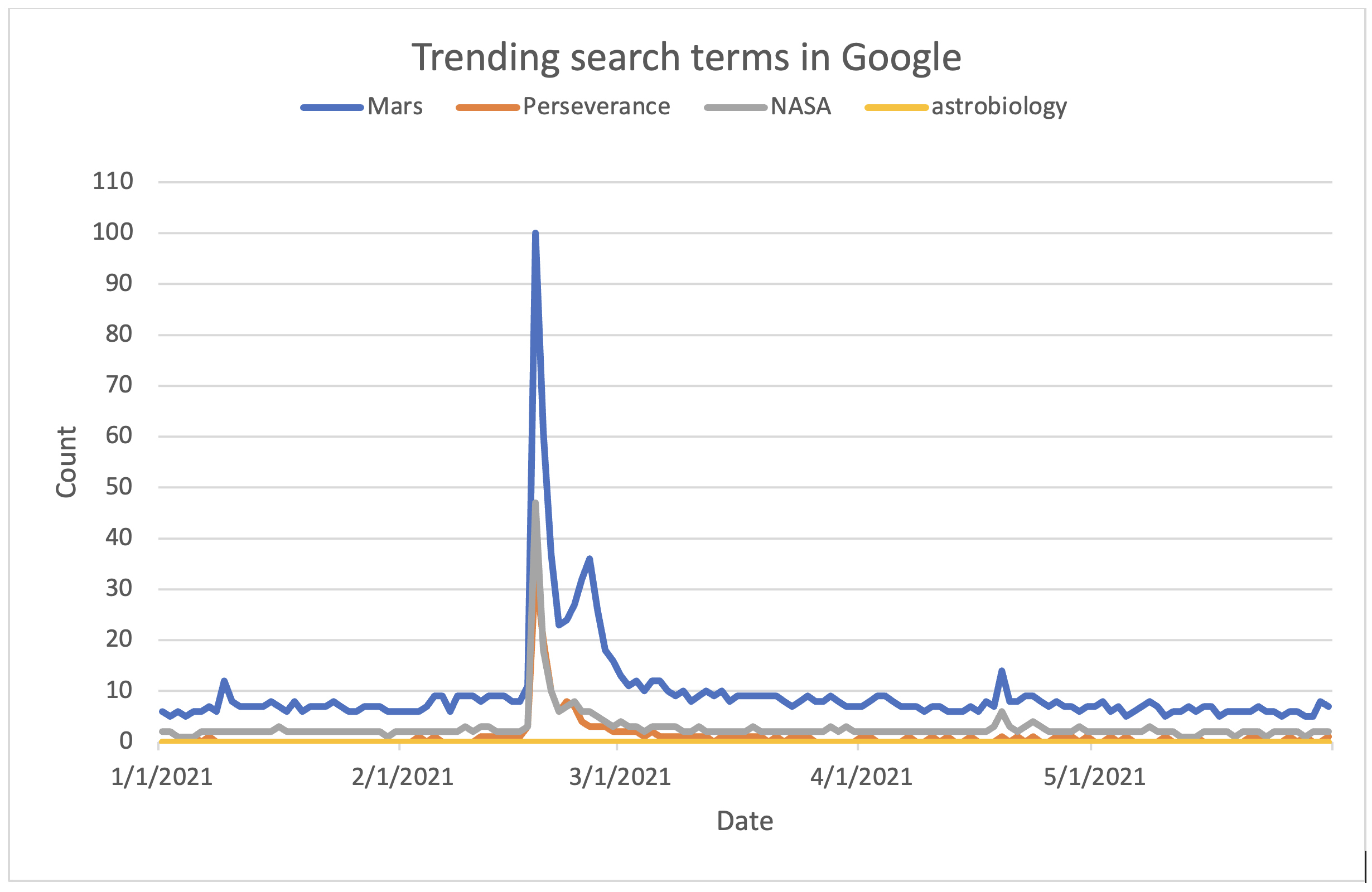
This has many of the requirements of a good graph. The title explains what the graph is about, the axes are labelled and the four search terms are each given their own colour, with a key to show which is which.
It could be made better by:
- making the graph larger, so that the four lines are more separate
- choosing different colours – the orange for ‘Perseverance’ and the yellow for ‘astrobiology’ are difficult to distinguish from each other.
Evidently, something interesting must have happened in mid-February to cause this spike in searches – you might remember that on 18 February 2021, the NASA Mars Perseverance Rover mission landed on Mars!
Structuring the dissertation .
Facing a blank page and the prospect of writing 5000 or so words can feel daunting. But you can structure the way you write to help make the task easier.
- Start with the structure
- Facing the blank page
- The narrative arc
- Finishing things off
- Referencing styles
Starting with the structure will help you consider how you want the dissertation to flow, and how to allocate your time and effort.
This example, taken from the Edexcel documentation, gives a suggested word count for the different sections of a ‘research review’ dissertation. All the exam boards publish their requirements, so you should check the requirements for your board and the type of EPQ you are doing .
A ‘research review’ dissertation would probably follow something like the structure above. For other kinds of project, check with your teacher or look at the exam board’s requirements. Knowing what structure the exam board is expecting helps you to know where to focus your effort.
In Table 4, you can see that the biggest section of the dissertation is the discussion/development/analysis of the argument, so it would make sense to spend the largest part of your writing time on this section. Look back at the Gantt chart under ‘Getting organised – Tables, graphs and charts’ for an example of time allocated in this way.
You’ve opened a new document. You know the sections you need to include.
How do you get started on the sentences that will fill the gaps in between? Two researchers offered suggestions from their experience.

Robert, a space scientist, says he usually works out the first paragraph in his head before sitting down to write.
- Ann’s summary
This is how Charlotte described her approach. First step, open a Word document!
Second step, write titles and sub-headings on the page. These can be working titles that you can come back to and polish once you have developed the document. But getting that structure down on the page is a key step for Charlotte in building the document and working out how the manuscript is going to flow. Once she’s broken the document up into sections, it feels much less daunting for her. Instead of starting at word one of six thousand, she’s working on smaller, more manageable chunks – word one of a hundred, or two hundred.
Step three is to write down the aims, objectives and scope of the document. And then she goes on to write the conclusions. And she says yes, that’s not a typo – if you’ve done a good job of researching the topic, developing the aims and objectives and making your notes, then writing the conclusion first should be relatively easy. The benefit of writing the end of your manuscript before the beginning is that you’re less likely to go off on tangents when you’re writing the rest of the manuscript, because you know where you’re heading.
If you feel you’ve thoroughly researched your topic and you’re still finding it hard to work out what your conclusions are, then it may be a good idea to turn your research notes into a presentation, during which you can ask yourself ‘what key message do I want the audience to walk away with?’, and that will be your conclusion.
Step five: write the remaining sections of the dissertation, justifying and building your arguments for each conclusion.
Charlotte’s main points

Charlotte’s steps are:
- Open a Word document!
- Write titles and sub-headings on the page.
- Write down the aims, objectives and scope of the document.
- Write the conclusion – ask yourself ‘what key message do I want the audience to walk away with?’
- Write the remaining sections, justifying and building your arguments for each conclusion.
Headings and sub-headings
Charlotte described how she likes to set up the headings and sub-headings that structure her writing, even though she knows they might change as the document develops.
Using descriptive headings, such as ‘The history of ...’ tells the reader what to expect in that section or chapter. This is sometimes called ‘signposting’, because the headings and sub-headings guide the reader around your work.
As well as descriptive headings, you can number your headings and sub-headings:
- Section 1: An introduction to…
- Section 1.1 : The history of ...
This means you can refer the reader back and forth (e.g. ‘see Section 1.2’), which cuts down repetition and wasted words.
Both approaches have the merit of getting something on to the blank page, which makes it look much less scary.
Whether you start with an opening paragraph, a set of headings, or another method that works for you, getting those first few words on the page is one of the biggest hurdles to clear.
Narrative – the story thread that runs through any piece of work we create – is important in any piece of writing. Stories keep people’s attention, as storytellers have known for hundreds of years. Writers, broadcasters and podcasters continue to make use of this fact today.
One way to think about how you shape your story is to consider its narrative arc. Yes, even the most ‘science-y’ of dissertations has a story.
Click on the crosses on Figure 6 to find out more about the components of the narrative arc.
Figure 6 The narrative arc
Points on the narrative arc
Description : A parabolic curve representing the narrative arc of a story. The first half of the curve rises to a peak, showing the points that build interest in the story. The second half falls back to the baseline, showing how we reflect on the details of the story and bring it to a close.
– In the Introduction , attract the reader’s attention at the start, perhaps by telling them what got you interested in the question; a personal interest, an ambition or a desire to know more about a topic.
– In the Introduction , describe the journey to your research question. Make sure you do actually tell your reader what your question is (you’d be surprised how often people forget that!)
Information
– In the Research Review section, you show the reader how you found your evidence; tell them about the keywords you used, the mindmaps, flowcharts, tables you made; what information was important and what was not; what stayed in and what didn’t.
– This is your analysis of the material you found, showing how you pulled together the information you uncovered in your review and what it meant for your question. However, this isn’t an absolute rule; where you put the analysis depends on the kind of dissertation you are writing.
– Tell the reader what you found out and how it relates to what is already known.
– Use the Conclusion to round off your story. What’s the answer to your research question? What did you discover? What’s still not known?
There are a couple of sections of the dissertation that are best dealt with towards the end of the writing process: abstract and bibliography.
The abstract
At the beginning of the dissertation, you should provide a short summary or abstract.
An abstract is like a trailer for a film or television programme. It gives the reader a sense of what’s in the dissertation. However, unlike a trailer, it’s OK to give away the ending! Someone who only reads the abstract, and never looks at the dissertation, should still understand the scope of your work.
For this reason, it’s easier to write the abstract towards the end of your writing time, when you have a complete picture of your work in your mind.
The abstract is usually quite short (perhaps only 200 words) and is written in one paragraph. That’s not much space, so what should you include?
A typical abstract would tell the reader:
- why you did this research – the question you set out to answer
- how you did the research – the methods you used to collect the data and where you looked for it
- what you found out – a summary of your main findings
- the key message – the answer to your question; if your readers could remember just one thing from your dissertation, this would be it.
One way to approach writing the abstract is to read through your dissertation section by section. For each section, write one or two sentences that summarise the main point. Click on ‘example’ to see what we mean.
The use of complementary and alternative medicine (CAM) is growing rapidly among young people, but the usefulness and safety of some therapies is controversial. Therefore, I investigated the question: what are the best places to reach young people with information about CAM?
Using Google Scholar, I searched for articles using different combinations of these search terms: ‘alternative medicine’, ‘complementary medicine’, understanding, knowledge, motivation, CAM. I filtered the results to keep only articles that related to the use of CAM by young people. I defined ‘young’ as people under the age of 25. I downloaded twenty complete papers, articles and other resources from open access sources and the Open University research repository.
Use of CAM by young people has increased since 2000. Young women use CAM more than young men. The most common sources for getting information about CAM are friends and family and social media.
Key message
The best way to provide information for young people about CAM is through social media.
Take away the headings and polish the sentences and you have an abstract:
The use of complementary and alternative medicine (CAM) is growing rapidly among young people, but the usefulness and safety of some therapies is controversial. Therefore, I investigated the question: what are the best places to reach young people with information about CAM? Using Google Scholar, I searched for articles using different combinations of these search terms: ‘alternative medicine’, ‘complementary medicine’, understanding, knowledge, motivation, CAM. I filtered the results to keep only articles that related to the use of CAM by young people. I defined ‘young’ as people under the age of 25. My search found twenty relevant papers, articles and other resources, which I downloaded from open access sources and the Open University research repository. My results show that young people’s most common sources for information about CAM are friends and family and social media. Therefore, I believe that using social media is the best way to provide information about CAM for young people.
The bibliography or reference list
The last thing to include in your dissertation is the bibliography or reference list * .
Your reference list shows the people who read (and mark!) your dissertation how well you have researched your subject and how your arguments are supported by evidence from other people’s research.
It is also evidence of how you have been open and honest in your work. Readers can use it to find the sources that you used and check that you have read and used them correctly.
Using your reference list, a reader should be able to find that source for themselves if they want to follow up an idea or check something you have written. Including a reference list helps you avoid plagiarism (passing off someone else’s work as your own), because readers can check the original source if they have any doubts.
If you need a reminder of what information you should keep, look back at ‘Finding and using evidence – Keeping track’ .
* A reference list is a list of all references to other people’s work that you have mentioned in your dissertation. A bibliography is a list of references, plus the background readings or other material that you have read but not actually mentioned.
The Open University Library Services’ Referencing and plagiarism page has lots of help and pointers to further information about references and referencing styles.
If you go on to study at university, and have to write essays, assignments and reports, you will be asked to set out – or ‘style’ – reference lists in a specific way. There are many different referencing styles; which one you are asked to use will depend on the subject you are studying and the university’s requirements.
For the EPQ, check the requirements of your exam board or ask your teacher what these are.
Even if you aren’t asked to use a specific style, you should aim to include as much information about the sources as possible. The minimum information would be:
- the authors’ (or creators’) names
- the year the source was published
- the title of the article or book chapter, or the name of the artwork, film or video
- the title of the journal or the book in which the article/chapter appeared
- for books – the name of the publisher
- for online sources – the name of the website and the page on which the article appeared, the URL of the website, and the date on which you read the article*.
*The date you found the article is important for online sources, as websites sometimes disappear or are changed. If the reader can’t find the same article but knows when you found it, that suggests they can trust the source.
These examples are laid out in the Harvard referencing style, which is a style used in many university subjects.
Books and ebooks
Surname, Initial. (Year of publication) Title . Edition if later than first. Place of publication: publisher. Series and volume number if relevant.
Mukherjee, S. (2011) The Emperor of all Maladies . London: Fourth Estate.
Article from an academic journal
Surname, Initial. (Year of publication) ‘Title of article’, Title of Journal , volume number (issue number), page reference. Doi: doi number if available OR Available at: URL (Accessed date)
Ungar, S. (2008) ‘Global bird flu communication: hot crisis and media reassurance’, Science Communication , 29(4), 472-497. DOI: 10.1177/1075547008316219
Article from a newspaper or magazine
Surname, Initial. (Year of publication) ‘Title of article’, Title of Newspaper , Day and month, Page reference if available. Available at: URL (Accessed: date).
Rice-Oxley, M. (2021) ‘Do good things come to those who wait?’, The Guardian , 26 February. Available at https://www.theguardian.com/world/2021/feb/26/do-good-things-come-to-those-who-wait (Accessed 26 February 2021).
Organisation (Year that the page was last updated) Title of web page . Available at: URL (Accessed: date).
BBC Online (2020) How New Zealand relied on science and empathy . Available at: bbc.co.uk/news/world-asia-52344299 (Accessed 17 September 2020).
Writing clearly .
Good writing takes time, effort and energy. Being able to produce clear, readable, logical and well-argued pieces of writing is important in both university and in your working life.
- Precise & concise
- Keep it simple
- A word about style
- Quoting others

Blaise Pascal was a seventeenth-century mathematician, physicist, inventor, philosopher and writer. He once wrote:
‘ Je n’ai fait celle-ci plus longue que parce que je n’ai pas eu le loisir de la faire plus courte ’ .
–Blaise Pascal, Provincial Letters, Letter XVI, December 1656.
Translation: ‘I wrote this very long [letter] because I didn’t have the time to make it shorter’.
What do you think Pascal meant by this?

Claire, whose research looks for evidence of how we might ‘ sniff’ for life , produced a mind map of what she thinks Pascal meant (Figure 9). The audio below describes her process.
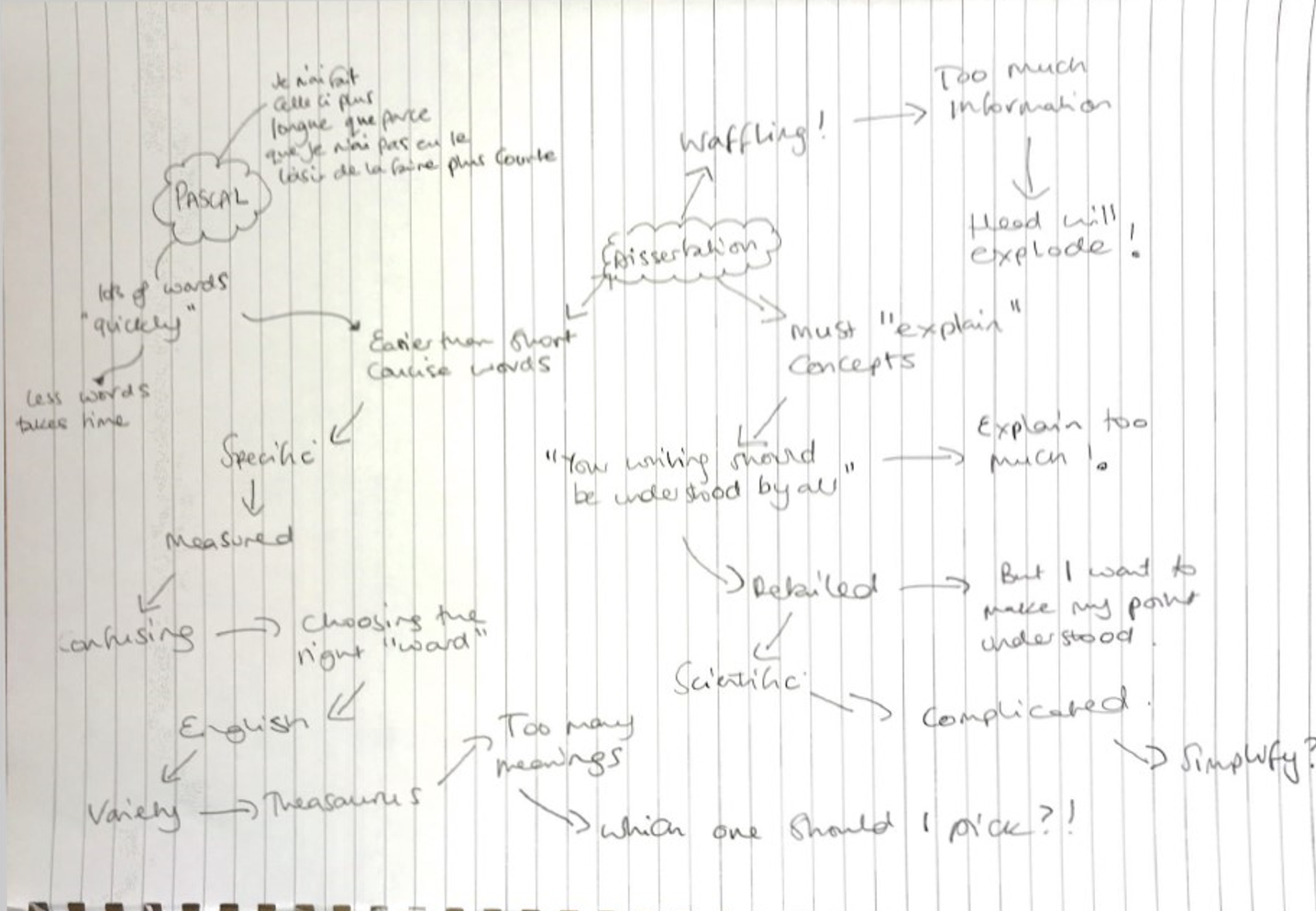
Claire’s mind map takes us on quite a journey. Starting from Pascal’s premise that it’s better to write short than long, slower than quicker, makes her think about the need for concision, to look for concise words, words that are specific and measured, not being confusing, the need to choose the right word. Not always easy in English, where one word can have a variety of meanings.
She suggest perhaps using a thesaurus, but that could lead down the pathway of having too many words to choose from and not being able to decide which one to pick. Thinking about the dissertation, she introduces a word we all dread – waffling! No one wants to be a waffler, and giving too much information might make your readers’ heads explode.
And yet we must explain our concepts, because we want our writing to be understood by everyone but that means a balance with explaining too much. We need to give enough detail to make our point understood, and scientific, if it’s that kind of research question, without being too complicated. All in all, it comes down to the need to simplify.
More tips from Ann
As Pascal – and Claire – suggest, taking out what isn’t needed is as important as putting in what is.
Writing clearly and to the point takes time, effort and energy. Allow yourself plenty of time to draft, review, get feedback, edit ... draft again, review again, get more feedback, edit again … … check, proof-read, finish.
As we established earlier, your dissertation will have a word allowance. EdExcel, for example, suggests a research review dissertation should be around 6000 words. That sounds like a lot, but then, you’ve done a lot of work that needs to be included.
The exact figure will depend on the exam board’s requirements and the kind of EPQ you have carried out, so check before you start writing, or ask your teacher.
The best writers keep things as simple as possible. It’s a way of being kind to your readers and making the task of reading easier.
However, keeping things simple isn’t simple. As Steve Jobs, the designer and co-founder of Apple said: ‘Simple can be harder than complex: you have to work hard to get your thinking clean to make it simple’. The same applies to writing.
When you’ve done a complex piece of work, it’s tempting to think you can only describe it in complex language. But you should try to avoid the pitfall of using over-complicated language. You don’t want to run the risk of sounding pompous or making your text too difficult to understand.
You’ve almost certainly come across simple questions with unnecessarily complicated answers before. Here’s an example. Which is the best answer to this question?
The Up Goer Five challenge
To practise writing in simple language, you can take the Up Goer Five challenge. This is a project by the artist Randall Monroe, creator of XKCD .
The challenge is to explain a hard idea using only the ‘ten hundred’ most common words in the English language. As an example, how might we explain ‘astrobiology’?:
We think about where we might find living things. We take stuff from places – dry places, cold places, hot places – and we put it in stuff that we think has what living things need to grow. We wait, then we use a seeing-small-things tool to look for the living things. At the moment, we look at stuff from here but one day, we want to look at stuff from other stars.

Have a go at using the Up Goer Five text editor (which has a link to the ten hundred most common words ) to explain an idea related to your research topic. If you find it tricky to think of an idea, here are a few to get you started:
- global warming and its consequences
- what causes earthquakes
- the problems caused by the misuse of antibiotics.
You wouldn’t write your dissertation in this style, but experimenting with writing like this helps develop skills in keeping things simple, avoiding jargon and complicated language and writing in short sentences and paragraphs.
We all write in different ways every day, depending on who we’re writing for. The style of a textbook is different from the style of a WhatsApp message; we write an email to a family member in a different style from the way we would write a personal statement for a university application.
When we write anything, we start by thinking about our readers and the kind of writing they are expecting to see.
For the EPQ dissertation, start by checking the requirements of the exam board you are studying with. It is very likely that the exam board will want the dissertation to be written in a formal style; the kind of style you will have seen in the academic articles and books you drew on in your research.
Plagiarism is presenting someone else’s work as your own. It is, essentially, theft of someone else’s work.
Learning alongside a friend, discussing ideas or sharing your thoughts can be helpful and valuable. We have also encouraged you to take notes on everything that you find. So, it is likely that you have ideas you want to present in your report that are not entirely your own.
Plagiarism can occur in a variety of ways. It can mean copying someone else’s text and passing it off as your own, or copying and pasting text/images from a web page and pretending they are your own work. It can also overlap with what is called ‘collusion’, which means collaborating with someone to share work on a task that you are expected to complete by yourself.
Try this interactive resource from OpenLearn to understand some of the challenges and ways to avoid plagiarism. This is aimed at university students, but it will be relevant for the EPQ.

All my own work
Plagiarism comes in all shapes and forms. Step into the shoes of a university student to learn the challenges and temptations facing her during her assignment, and help make it all her own work.
Level: 1 Introductory
There will be points in your dissertation when you want to present ideas that have come from someone else’s work. How can you do this while avoiding plagiarism?
Identify your sources
If you have used an image, graph or chart created by someone else, identify where the image has come from and who made it.

You might remember this image from Article 1 , in the section on dealing with feedback.
This image comes from an online picture library, creazilla.com. They have placed it in the ‘public domain’, which means it can be re-used freely. Show this information in the image caption within your work.
If you create a graph, chart or table yourself, identify the source of the data, as you saw earlier in ‘ Getting organised – Tables, graphs and charts ’.
If you find a phrase or a sentence in a source that helpfully illustrates a point you are trying to make, you can quote that in your work. You must quote it exactly as the authors wrote it. After the quote, you give the name of the author, the date of publication and the page where the quote is from. Then give the full reference in your reference list (see ‘ Structuring the dissertation – Referencing styles ’). For example:
This shows that the format of an infographic can influence people’s responses to the evidence. For example, ‘ graphs commonly used to show descriptive statistics, such as line or area graphs, may also appear “scientific” and create a pseudo sense of trustworthiness ’ (Li et al., 2018, p. 4).
The quote marks (‘…’) show which words are the quote.
We use the Latin phrase ‘et al.’ (meaning ‘and others’) when an article has more than three authors, so that the reader doesn’t have to read through a long list of names. In the reference list, you would see the full list of authors along with the other source details:
Li, N., Brossard, D., Scheufele, D., Wilson, P. and Rose, K. (2018) ‘Communicating data: interactive infographics, scientific data and credibility’, Journal of Science Communication, 17(2), A06. DOI: 10.22323/2.17020206
When you paraphrase, you express an idea that has come from someone else in your own words. You might do this to re-state the idea in simpler language, or to bring together the ideas of several writers on the same topic. Paraphrasing can also help you show that any new ideas you’ve put together from your research are supported by earlier research.
You should show where the ideas you have paraphrased came from, but because you are not directly quoting, you need only give the authors’ names and the date of publication. For example:
My survey of fifty young people aged 16 to 18 showed that their social media posts were most often connected with current events. This is supported by earlier research, which shows that the most common topics for young people’s posts are current events, health and fitness, and celebrity and entertainment news, closely followed by science and technology (Hargittai, Füchslin & Schäfer, 2018) .
In the reference list, you would see:
Hargittai, E., Füchslin, T. and Schäfer, M. (2018) ‘How do young adults engage with science and research on social media?’, Social Media + Society, July-September 2018, 1-10, DOI: 10.1177/205630511879772
Although your dissertation must be all your own work, you can ask for help to review what you have written.
How do you ask for help, then, while keeping the dissertation all your own work and avoiding plagiarism?
Reviews – who and when?
Before you ask someone to review your work, you can check some things for yourself.
Check the spelling and grammar . Microsoft Word has built-in tools, or you can use online ones such as Grammarly . The more technically correct your writing is, the more your reviewers will be able to focus their energy on the content.
Then read it all through yourself . Some people like to read through silently, line by line, others prefer to read the text out loud. You can record yourself and listen back later, or use the Read Aloud function in Word, if you’re using that software. This has the advantage of using a different part of your brain – when you listen, you hear mistakes that you just don’t see in writing.
After you have reviewed it yourself, ask others to do the same. Getting someone else’s feedback on your work is immensely valuable. This is where you can collaborate with friends or classmates – if you ask them to review your work, you can offer to review theirs. And families can help too; even if they don’t know anything about your topic, the questions they ask will help you review your work.
- Michael asks for help
- Who could you ask for help?

Listen to the audio in the next tab about how Michael, who is a microbiologist, asks for help. When does he do this, and who does he ask?
Michael turns to his colleagues, his family and his senior colleagues at work. He asks for help at different stages: perhaps when he’s struggling a little, when he’s written the first draft and later on at the final stages, when he’s finished editing.
For Michael, feedback is incredibly important, not only for the actual content of the work, but for assessing how easy it is to understand. And he felt it’s always important to consider reviews of our writing from the viewpoint that the reviewer wants to help us improve our work, not criticise it. In terms of who he asks, first he calls on his peers; when he was at school, friends in his class and year, and now his colleagues, who can comment on the content of the work and how easy it is for them to follow. When he was at school, he also turned to his parents. During high school, his parents helped with input on grammar, spelling and how easy it was to understand. Now, his wife performs that role. As he says, by having someone from outside the field review your work, you can gain valuable insights. He also thinks about his seniors – in his current job, his senior colleagues will read multiple drafts of a manuscript before it’s complete. This is always an advantage – it allows him to get input from someone more experienced and means the work is improved.
In terms of when, he asks for help when he’s struggling, perhaps to find the right direction for a piece of work. Discussing the work with a friend or a teacher can start him developing insights on where it should start. Certainly after completing and spell-checking a first draft, he’ll ask for help.
And of course it’s always important to go back and review after editing, because when you change a piece of work, it’s easy to introduce errors, as well as fix them.
Conclusion.

Other articles in this series...
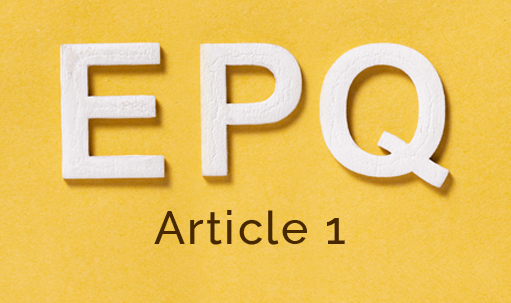
EPQs: designing your research question
You’ve already decided to do an EPQ, so it might seem a little odd to start this resource by asking you to consider why you want to do a research project. People do an EPQ for all sorts of reasons. Why do you want to do an EPQ?
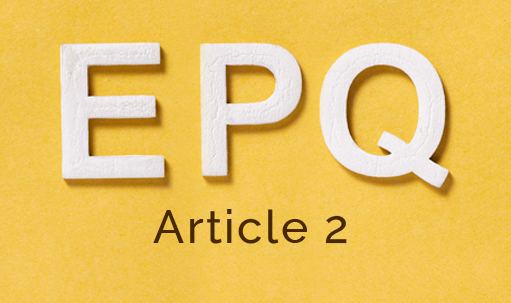
EPQs: finding and using evidence
Finding the evidence that will help you understand a topic or answer a question is an important stage in the research process. And once you have found it, you will need to examine it closely and carefully, to judge how reliable it is and whether it is useful to help you answer your question.
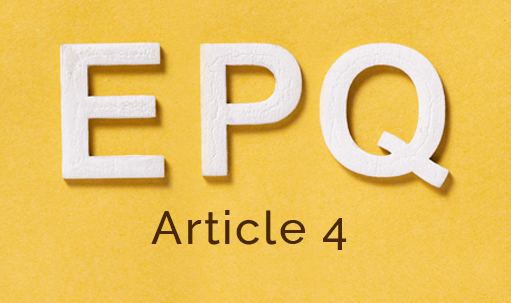
EPQs: why give a presentation?
What are the guidelines for the presentation?
Become an OU student
Ratings & comments, share this free course, copyright information, publication details.
- Originally published: Friday, 3 March 2023
- Body text - Creative Commons BY-NC-SA 4.0 : The Open University
- Image 'Graph of the EPQ cycle' - Copyright: Ann Grand
- Image 'Comparison of four search terms used in Google in the UK from Jan to May 2021.' - Copyright: Ann Grand
- Image 'Robert, a space scientist.' - Copyright: Robert from AstrobiologyOU
- Image 'Sketch of Blaise Pascal' - Copyright: Wikimedia Commons
- Image 'Photo of Claire' - Copyright: Claire Batty
- Image 'Claire's mind map' - Copyright: Claire Batty
- Image 'Screenshot from the UpGoer project' - Copyright: XKCD
- Image 'Responses to feedback ' - Copyright: creazilla.com Public Domain boy crying angry woman happy man
- Image 'Photo of Michael' - Copyright: Michael Macey
- Image 'Extended Project Qualification banner' - Copyright: © Betta0147 | Dreamstime.com
- Image 'All my own work' - The Open University under Creative Commons BY-NC-SA 4.0 license
- Image 'EPQs: why give a presentation?' - Alphabet Yellow © Betta0147 | Dreamstime.com under Creative Commons BY-NC-SA 4.0 license
- Image 'EPQs: writing up your dissertation' - © Betta0147 | Dreamstime.com under Creative Commons BY-NC-SA 4.0 license
- Image 'EPQs: finding and using evidence' - Alphabet Yellow © Betta0147 | Dreamstime.com under Creative Commons BY-NC-SA 4.0 license
- Image 'EPQs: designing your research question' - © Betta0147 | Dreamstime.com under Creative Commons BY-NC-SA 4.0 license
Rate and Review
Rate this article, review this article.
Log into OpenLearn to leave reviews and join in the conversation.
Article reviews
For further information, take a look at our frequently asked questions which may give you the support you need.
Art-based Artefact FULL Essay & Sketchbook Example
Jennifer Leigh | 28th September 2019
Many students are warned before taking on an EPQ, that artefact projects are substantially harder and score substantially lower than full essay projects. The key difficulty with artefact EPQs is making them research-based and the biggest task I had to overcome was insuring my artefact complimented my research, rather than the other way around. I was the only student in my year group to attempt an artefact EPQ and there was very little help as to the structure my EPQ should take.
During Sixth Form, I completed an art-based artefact EPQ on the significance of light and colour in Impressionist art. This EPQ followed obtaining full marks in my Art GCSE, so I chose to take a very similar process in creating my EPQ project and sketchbook.
In the end, I obtained 48/50 in my EPQ in June 2019 (AQA EPQ A* boundary = 45/50).
Looking for top EPQ tips? Check out my EPQ advice article here! This article features my EPQ essay and sketchbook in full that helped me achieve my A*. All the art below was submitted collectively as my artefact, with mini essays, artist studies and my final pieces being documented in an A3 sketchbook.
My EPQ essay (ft. photos of artefact)
Is use of light and colour the sole feature that defines the impressionist art era, or are there more significant motives behind the movement.

Impressionism can be described as “a style or movement in painting originating in France in the 1860s, characterised by a concern with depicting the visual impression of the movement, especially in terms of the shifting effect of light and colour”. Today, the Impressionists are some of the most popular artists whose artworks are readily seen by the public, namely due to the expressive use of colour and unique depictions of interesting compositions of light. However, this project aims to explore whether use of light and colour really is the defining feature of Impressionist art, or whether there are other reasons why this movement of art is so unique from other movements. Furthermore, I also explored whether some of the most famous “Impressionist” artists today can be defined as “true Impressionists”, based on their techniques and motives.

Initially, I researched Claude Monet, as he is frequented described by art historians as “epitomis[ing] most closely the values of Impressionism”1. Monet frequently used varied colour palettes in his paintings, such as in “The Cliff Walk at Pourville” (1882) and “Red Boats, Argenteuil” (1875), which helped create a powerful mood and atmosphere for the viewer. For example, in “Le Grand Canal” (1908), he primarily used more muted, cool colours to emphasise the bright morning, which focuses the viewer on the reflections and varied hues of the water. Studying the painting up close, one can see how the hints of pinks and yellows contrasts with the muted colours, creating a sense of calmness and tranquility. In series works such as his Haystacks, Monet painted many similar, simplistic scenes so that “nothing distracts the attention from his harmonies of colour and atmosphere”2. Taking a random selection of paintings from this collection, such as “Haystacks, Hazy Sunshine” (1891) and “Haystacks at the End of Summer, Morning” (1891), it is clear to the viewer that the real interest is in Monet’s manipulations of light through the medium of colour.

However, use of light and colour is not the only technique that Monet demonstrated that is considered typically Impressionist: Monet also frequently varied his style of brushstrokes, working very loosely and liberally in paintings such as in his Waterlilies series. This technique, combined with frequently working in plein air, led to many of Monet’s paintings creating a feel of a “moment in time” for the viewer. Indeed, many of the revolutionary techniques Monet demonstrated had the same key purpose: to create a sense of a moment or impression of a scene for the viewer, rather than a full, still representation of a period of time.

Considering Monet as a “true Impressionist”, I then began to compare his techniques and works to those of other artists during a similar period of art history. I initially researched Edgar Degas, who separated himself from most Impressionists by outwardly describing himself as a Realist, rather than an Impressionist, with a “lack of interest in plein-air painting, his abiding passion for the art of the great masters, and his experimentation in different media, including photography” 3 . However, it is clear by studying his works that Degas aimed to create an impression of a person’s life rather than Monet, who aimed to create an impression of a scene. One way that he demonstrated this was how Degas “began experimenting with off-centre compositions, and figures cut in half by the picture frame” 1 , which can be considered a way that Degas allowed the viewer to glimpse “an unexpected slice of Parisian life”. This is comparable to how Monet used sketchy strokes and varied colours in his paintings; both artists used these contrasting techniques to give the viewer an impression of the scene in front of them, whether it was a landscape or a group of people.

Some critics have argued that “Degas never allowed himself to be called an Impressionist, and, affirming the supremacy of drawing over colour, was often highly critical of his colleagues [the Impressionist artists he frequently exhibited with at the Salon des Refusés]” 4 yet, despite this, he did show very similar motifs to other Impressionists like Monet. Indeed, a majority of written sources on Degas were in books containing a wide range of other Impressionist artists, implying that many art historians do draw great similarities between Degas’ and other Impressionists’ work. Studying Degas’ sketches and paintings as a modern viewer, it is clear that the theme of capturing a moment for the viewer was a theme of Impressionism that Degas consistently demonstrated, along with other Impressionists.

Another artist prominent at the time of the Impressionists was Paul Cézanne, whom I also researched as part of my project. Like other Impressionists, Cézanne presented his work at the 1870 Salon de Réfuses, however he drifted away from the Impressionist movement and focused on creating more carefully structured compositions, with a unique crystal-life appearance. In paintings such as Tall Trees at the Jas de Bouffan (1883), Cézanne used “constructive” strokes, consisting of flat strokes of a consistent scale, shape and direction, “giving the picture an overall coherence … through slow methodical brushwork” 5 . Art historians can infer that rather than attempting to create atmospheric conditions, he sought to create spectrums of colour that more realistically replicated the conditions of the day.

Some critics argue that Cézanne was key to the Impressionist movement, while others, such as Hajo Düchting, claim “once the heyday of Impressionism dawned, Cézanne had already put both Paris and Impressionism far behind him” 6 . In this case, it is important to note that Düchting is writing with the purpose to persuade the reader that Cézanne was a truly unique and revolutionary artist of his time, so the author avoids crediting the origins of Cézanne’s style to any artist or movement, such as the Impressionists, throughout the book. Despite potential bias in his work, it is difficult to ignore Düchting’s argument that Cézanne was unlike the Impressionists; indeed, even sources specifically covering Impressionist artists describe Cézanne as relinquishing Impressionism, “insufficient for [his] purpose and inadequate to [his] aims” 4 .

Many of the sources I did study as part of my research gave a general overview of Impressionism, such as “Great Artists of the Western World: Impressionism”, considering how many artists of the same period of history used Impressionist techniques; this suggests that the authors may be biased in looking at Cézanne and Degas from a purely Impressionist viewpoint, rather than considering techniques which made both artists stand out from classic Impressionists like Monet. Despite this, visiting galleries and exhibitions such as “Drawn in Colour: Degas from the Burrell” (National Art Gallery) and “Corteau Impressionists: From Manet to Cézanne” (National Art Gallery) offered the opportunity for first hand research in seeing these artists’ work up close, supporting evidence from these texts regarding to what extent Degas and Cézanne really were “Impressionists”. The Corteau Impressionists exhibition at the National Art Gallery 5 featured a range of artists from a similar period of art history, such as Manet, Renoir and Seurat. However, the paintings themselves and their descriptions were clear evidence of how differently these artists worked; for example, Seurat was described as being “dissatisfied with Impressionists’ intuitive responses to light and colour” and thoroughly discarded their style of thinking, despite being exhibited as one of them in this exhibition, suggesting that not all those artists considered “Impressionists” by the public can truly be considered one by art historians. Generally, the Impressionist exhibitions proved more useful sources than the texts, which were prone to producing bias to make the artist seem more original in their techniques (and therefore less “typically Impressionist”), while seeing the paintings and annotations up close allowed for a more critical judgement of the methods used.

Using the research I had gathered from these three key artists, I began to develop an idea for a final piece which incorporated what I felt were the key features of Impressionism. I focused on a series of works, taking inspiration from how both Monet and Degas created multiple, similar paintings which showed subtle changes in composition and/or atmosphere. I chose to focus on landscapes, picking compositions from my garden in order to give me the change to work en plein air, trying to pick images which worked together in a series, yet also showed some compositional interest, taking inspiration from Degas. Eventually I chose a set of two compositions that complemented each other with similar viewpoints. Throughout the painting process, I focused on capturing all the colours reflected in the light of the scenes, while preserving the spontaneous, loose feel of the Impressionist artists, taking note of what I’d learnt in my research. This can particularly be reflected in the portrayal of the trees, where I used broad brushstrokes to capture the constant movement of the leaves. I also used subtle variations of colour to reflect the slight changes in light and impression for the viewer: while the first painting has a strong, warm tint to reflect the calm twilight, the second painting consists of slightly cooler tones to suggest the vibrant daytime. This was an ode to Monet’s many series works, containing multiple similar scenes with strong variations in light and atmosphere. Overall, these paintings reflected and supported what I’d learnt during my research regarding the techniques and aims of Monet and Degas.

In conclusion, there is clear evidence for colour being a key feature in Impressionist art, yet this cannot be prioritised over the real motive behind the artist’s work: the reason for “Impressionist” art being given its name is due to whether or not the aim of the piece is to suggest a moment in time, inflicting some sort of emotion or atmosphere for the viewer. Despite this, it is accurate to suggest that “the Impressionist group in France falls into several sections” 4 . Monet and Degas both shared the same intention to capture an impression of a scene, despite doing this through different techniques; in comparison, Cézanne shared similar technical qualities in his painting style to Monet, yet his overall aim leant towards capturing a representation of a longer period of time. In this way, it is clear Monet and Degas demonstrate their Impressionist qualities to a much greater extent than Cézanne, which can be noted in viewing their work. In this way, the significance of colour in Impressionism is limited to simply being a means through which artists, such as Monet, can create these atmospheric effects and feelings for the viewer.
- Anon. (1987). Great Artists of the Western World. London: Marshall Cavendish.
- Mannering. (1998). The Masterworks of Monet. Bristol: Parragon.
- Drawn in Colour: Degas from the Burrell. The National Gallery, London. (Exhibition February 2018)
- Francia, d. (1961). Movements in Modern Art: Impressionism. Vienna: Brüder Rosenbaum.
- Courtauld Impressionists: From Manet to Cézanne. The National Gallery, London. (Exhibition November 2018)
- Duchting. (1996). Cézanne. Taschen America Llc.
- Sagner-Duchting. (1992). Claude Monet. Taschen America Llc.
- Reyburn. (1997). The Art of the Impressionists. Grange Books Ltd.
- Gariff. (2008). World’s Most Influential Painters and the Artists They Inspired: Stories and Hidden Connections Between Great Works of Western Art.
© 2020 Jennifer Leigh. Based on website design GreatSEO .

COMMENTS
9 steps to write your EPQ essay. 1. Come up with an idea. One of the main reasons students fail their EPQ is because they've chosen the wrong subject matter. It's vital that you choose a topic you're genuinely interested in, otherwise you won't have any motivation to work on it.
Work out what the plan is before you start writing, so that you don't have to rewrite a large portion of your EPQ essay. So grab a pen and paper, sit down, put on some nice music, and get to writing those subtitles. 5. Triple Check That Every Subtitle Question Actually Relates To The Main EPQ Topic.
Write an introduction: Begin your essay with an introductory paragraph that introduces the topic, outlines the scope of the essay, and provides an overview of the structure 4. Develop the main body: Write the main body of the essay, focusing on presenting your arguments, evidence, and analysis. Ensure each paragraph has a clear topic sentence ...
The EPQ aims to demonstrate skills which will help the candidate's application for university or a job. The EPQ is worth up to 28 UCAS points (which is equivalent to half of an A-Level). The EPQ is an independent student-led project. This means that students get to plan and conduct their research however they like.
DON'T over-complicate - 'academic essay' makes it sound like a big deal, but in terms of language and structure, it's very similar to regular essays written throughout school. Keep it simple. The most important thing is making sure your essay is clear, easy to understand and linked to research. So don't stress out trying to include ...
The Extended Project Qualification (EPQ) is an opportunity for you to work independently on a topic that really interests you or that you think is important. It is equivalent to an A-level qualification. These articles are designed to help you if you are enrolled on an EPQ. Why do research? Pause for a moment and think about this.
How to write an EPQ introduction. The first thing to do is to establish the purpose of the essay - in doing this, we want to break down the question that is being answered and examine the components of it. This sounds like it is just an exercise in definitions, and to an extent it is, but it's more complicated than it may appear because it ...
Reflecting. Expressing your ideas. This is the stage you have been building towards - writing your report. Although that is largely the focus of this page , it is not all there is to the EPQ. Your EPQ will be assessed on: Your completed Production Log. A written report (sometimes referred to in this guide as an essay)
Writing short, manageable portions for your EPQ essay makes the experience more productive, focused, effective, and less monotonous. 8. Write the introduction and conclusion paragraphs. Once you've completed writing down the answers to your subtitles, the next step is to write your introduction and conclusion paragraphs.
amount of work required to write a good essay, which results in two things: (1) late nights near the submission deadline, and (2) a disappointing grade. If you want to achieve a good mark, you should start planning your essay as soon as you have agreed your essay question with your supervisor. The following table may be a useful aid.
The EPQ is a reflection of a student's ability to independently research and pull their findings together into a coherent project. Most of the time, if students are good at researching, writing, and clearly presenting their knowledge, they will not have much of a problem with the EPQ.
4. Compelling Introduction. Begin your essay with a captivating introduction that clearly states your research question or objective. Engage your readers by providing context, significance, and a glimpse of what they can expect from your essay. 5. Thorough Analysis and Critical Thinking.
The EPQ (Extended Project Qualification) is a great way to earn extra UCAS points; It can be an essay, or it can be an entirely different project; It has many benefits, especially for students looking at top universities; You can choose from an endless selection of EPQ topic ideas and EPQ examples with little restrictions
Using an opener such as 'what' limits your research and your essay whereas 'to what extent' allows for both sides of the argument to be explored.Ultimately, a good question should be interesting and focussed. It can be changed through the planning process to become more focussed which shows an ability to recognise when change is needed and adapt.
AO4 - Within the EPQ essay, students need to be able to accurately review their entire project, ... Make It Relevant. A good EPQ research project is one that is relevant to the context of the modern world. Now, this doesn't mean that you can't orient your project around historical events. On the contrary, referring to the past is a great ...
The next step is to communicate all that you have done. Your dissertation is the element of the EPQ that is read and assessed by others who haven't been involved in your research. The Extended Project Qualification (EPQ) is an opportunity for you to work independently on a topic that really interests you or that you think is important.
What makes a good EPQ? - At the end of the day, you probably want to pass the EPQ with a grade you're happy with, and your chosen topic and title inevitably affects this. For example, your title must allow you to write an objective, academic essay using references, so it must have potential for a counterargument and some sort of debate.
What makes an A* EPQ? Getting an A* on your EPQ begins with picking a creative, individual and exciting question that is both specific and sufficiently broad to provide a detailed response. Above all, the most successful EPQs are those that genuinely interest the participant. In order to create such a question, think ahead.
Gariff. (2008). World's Most Influential Painters and the Artists They Inspired: Stories and Hidden Connections Between Great Works of Western Art. During Sixth Form, I completed an art-based artefact EPQ on the significance of light and colour in Impressionist art. This EPQ followed obtaining full marks in my Art GCSE, so I chose to take a ...